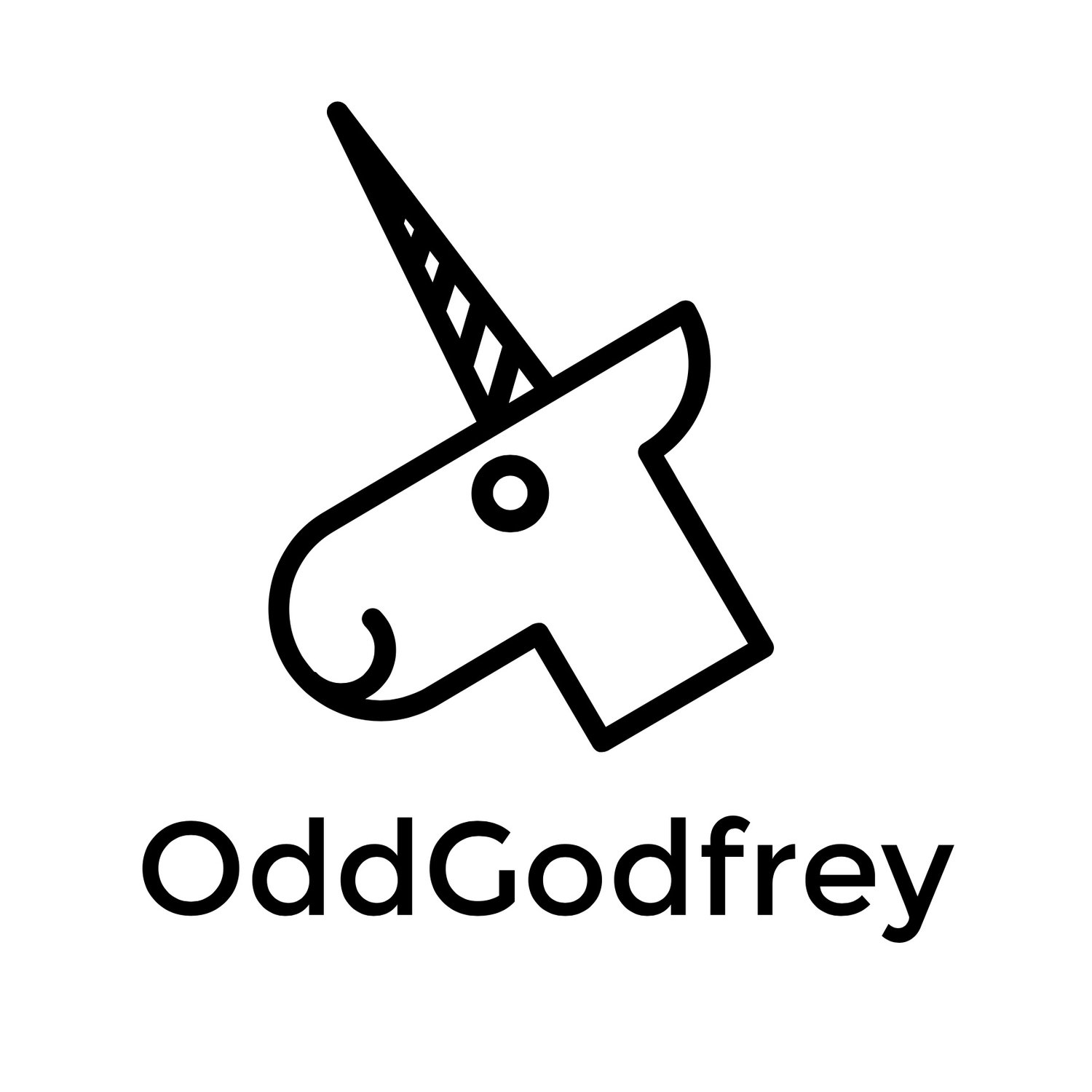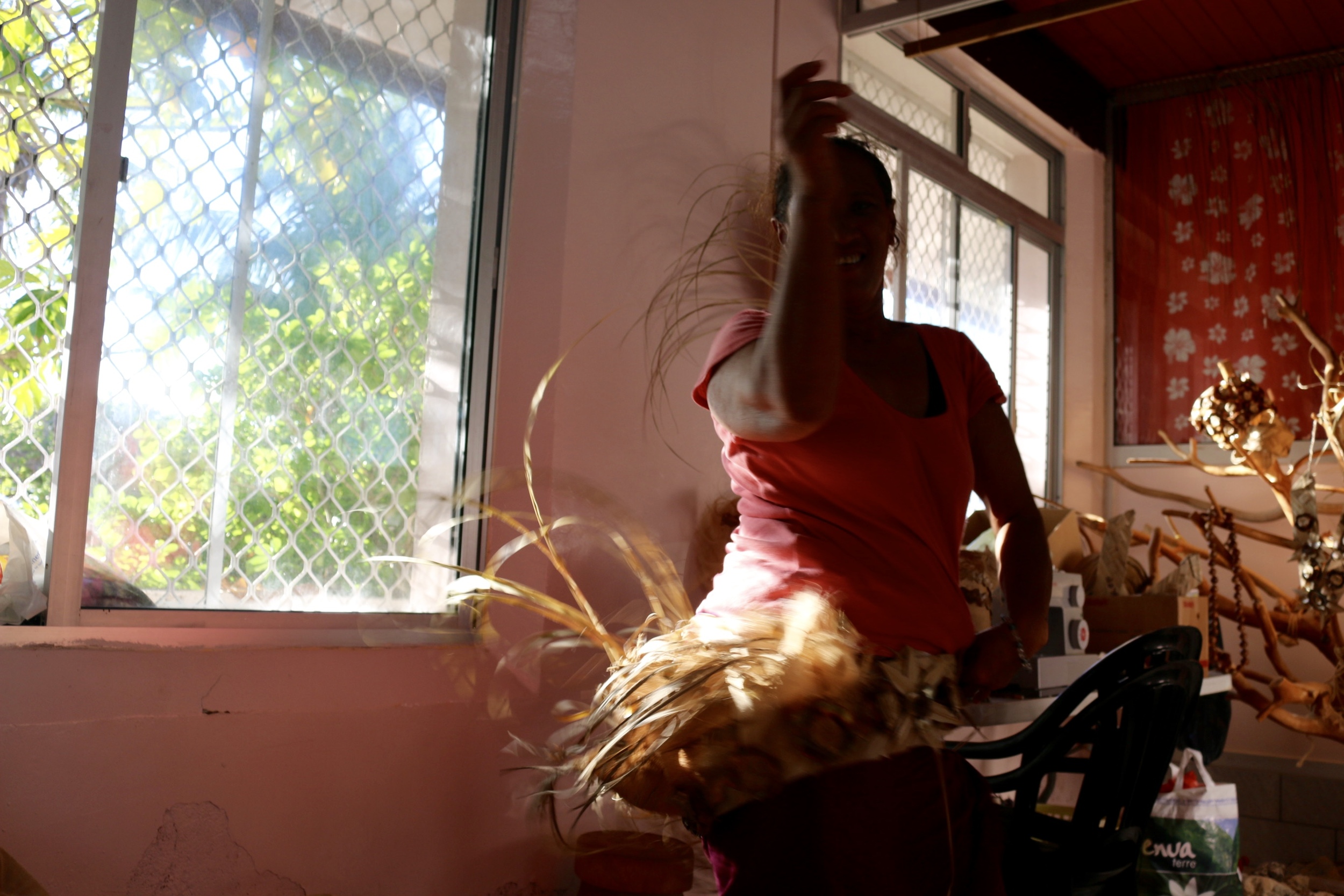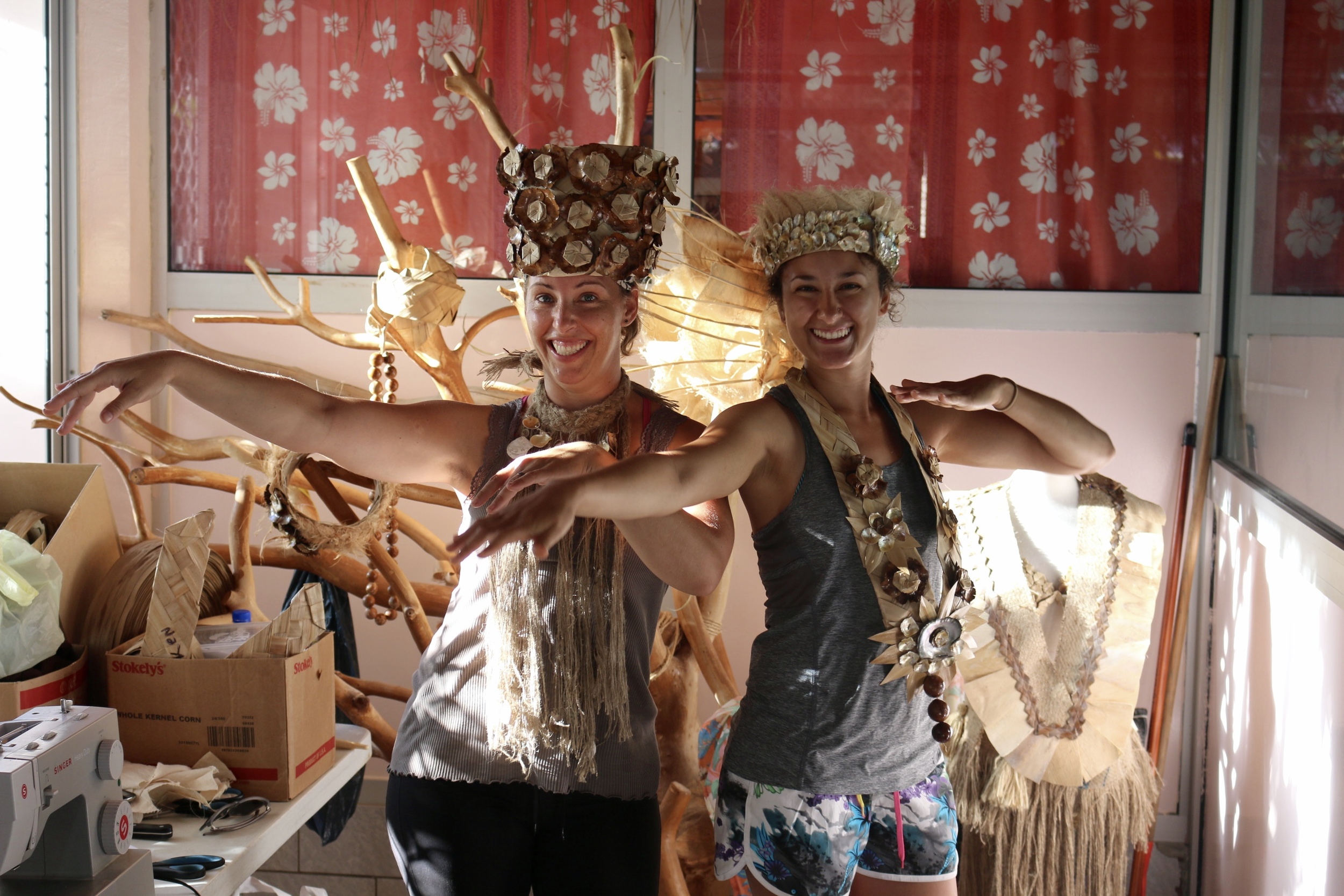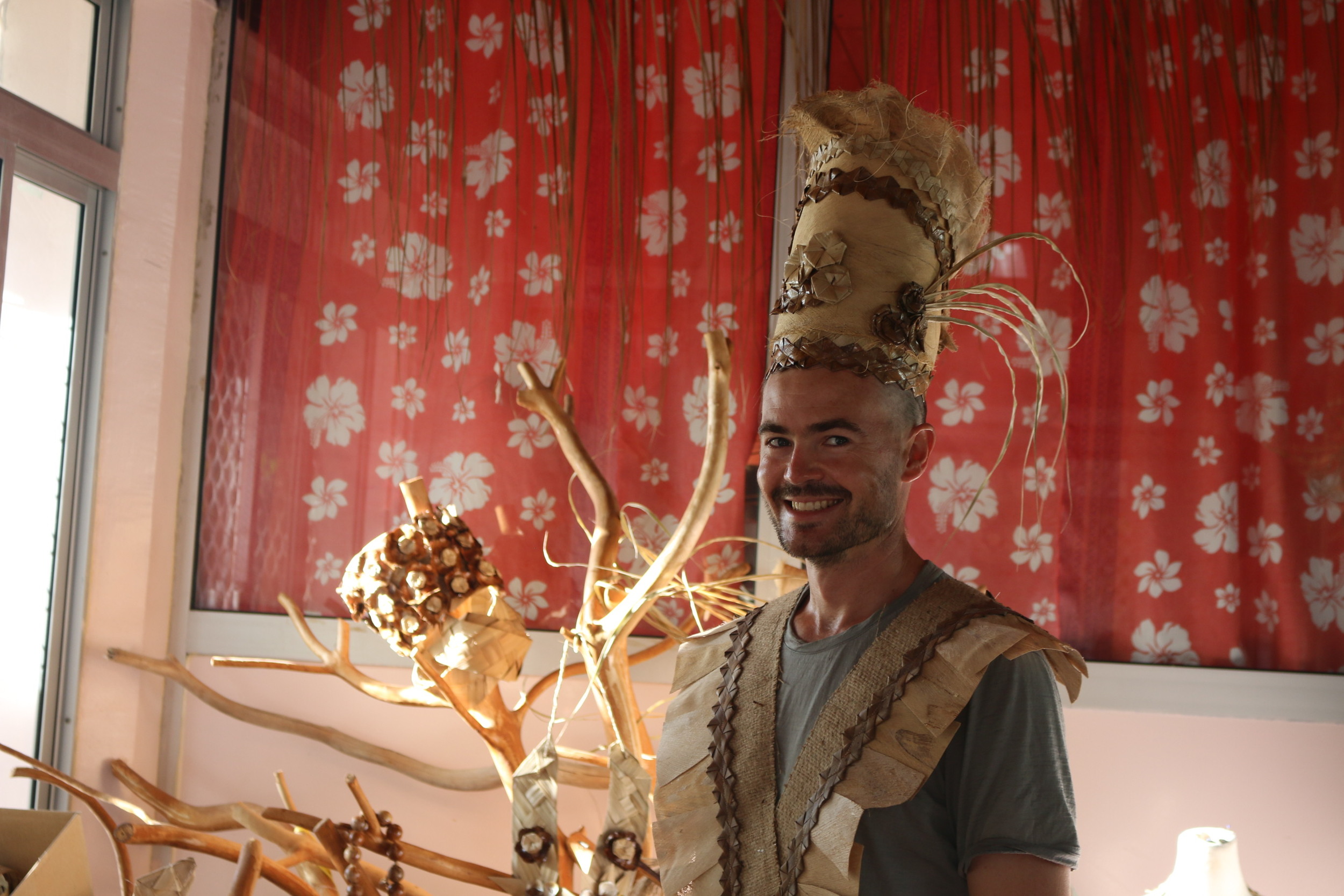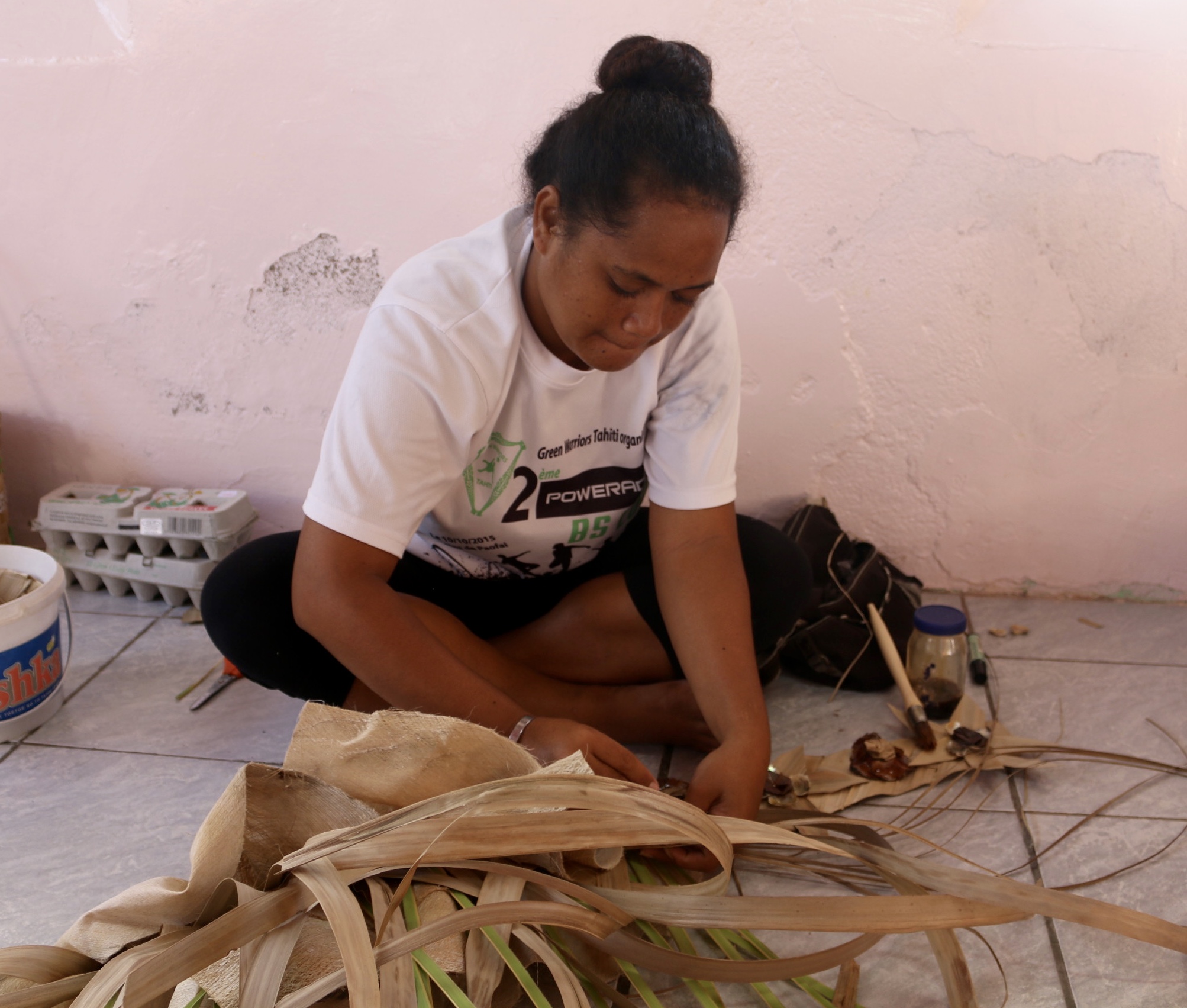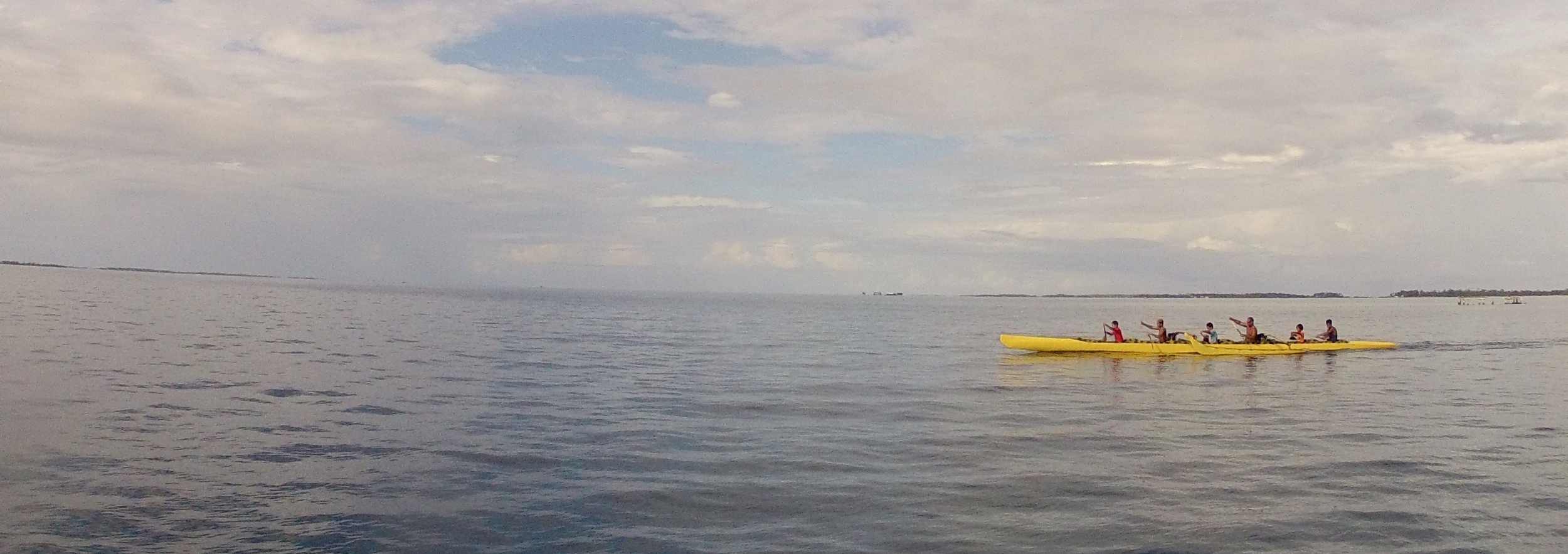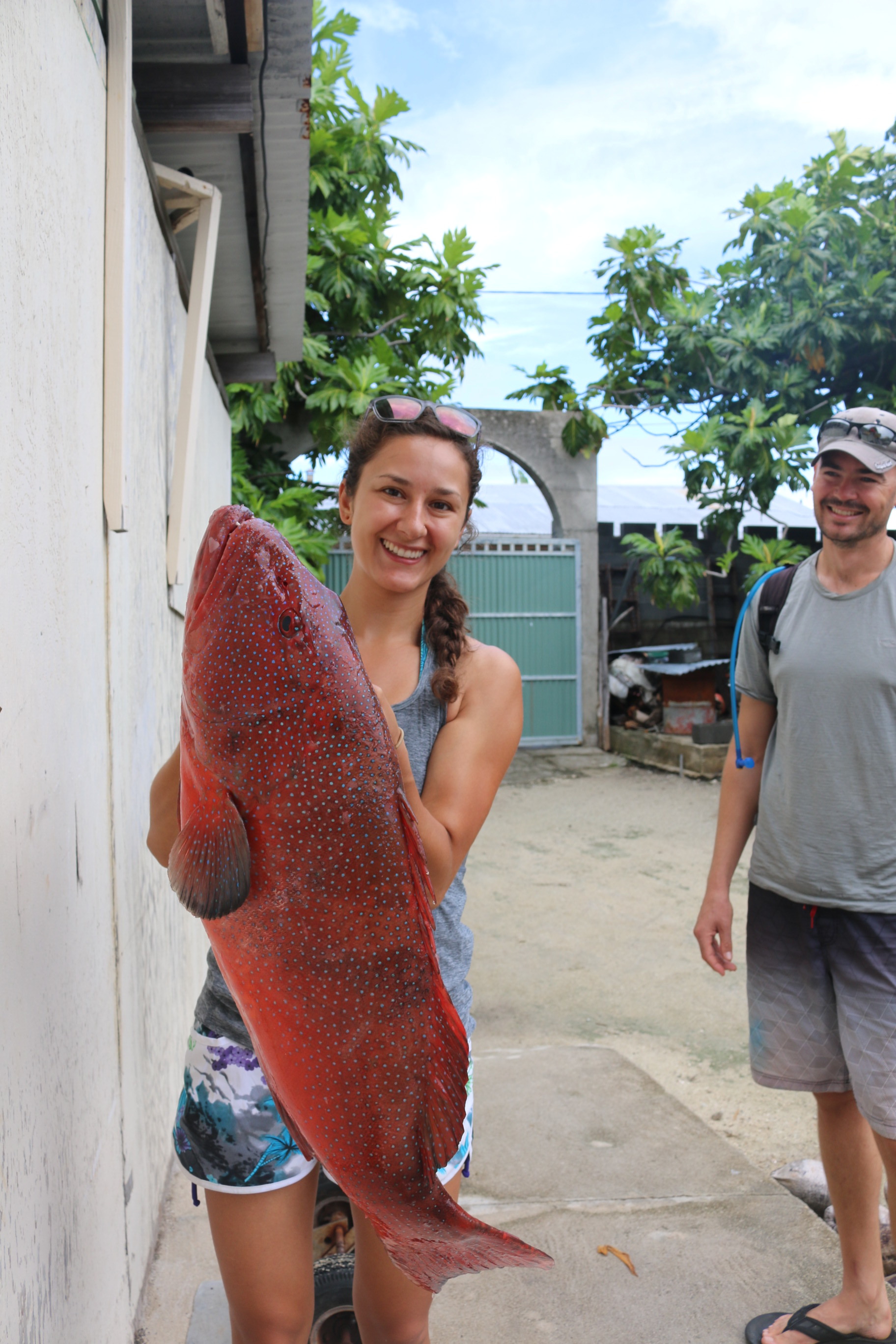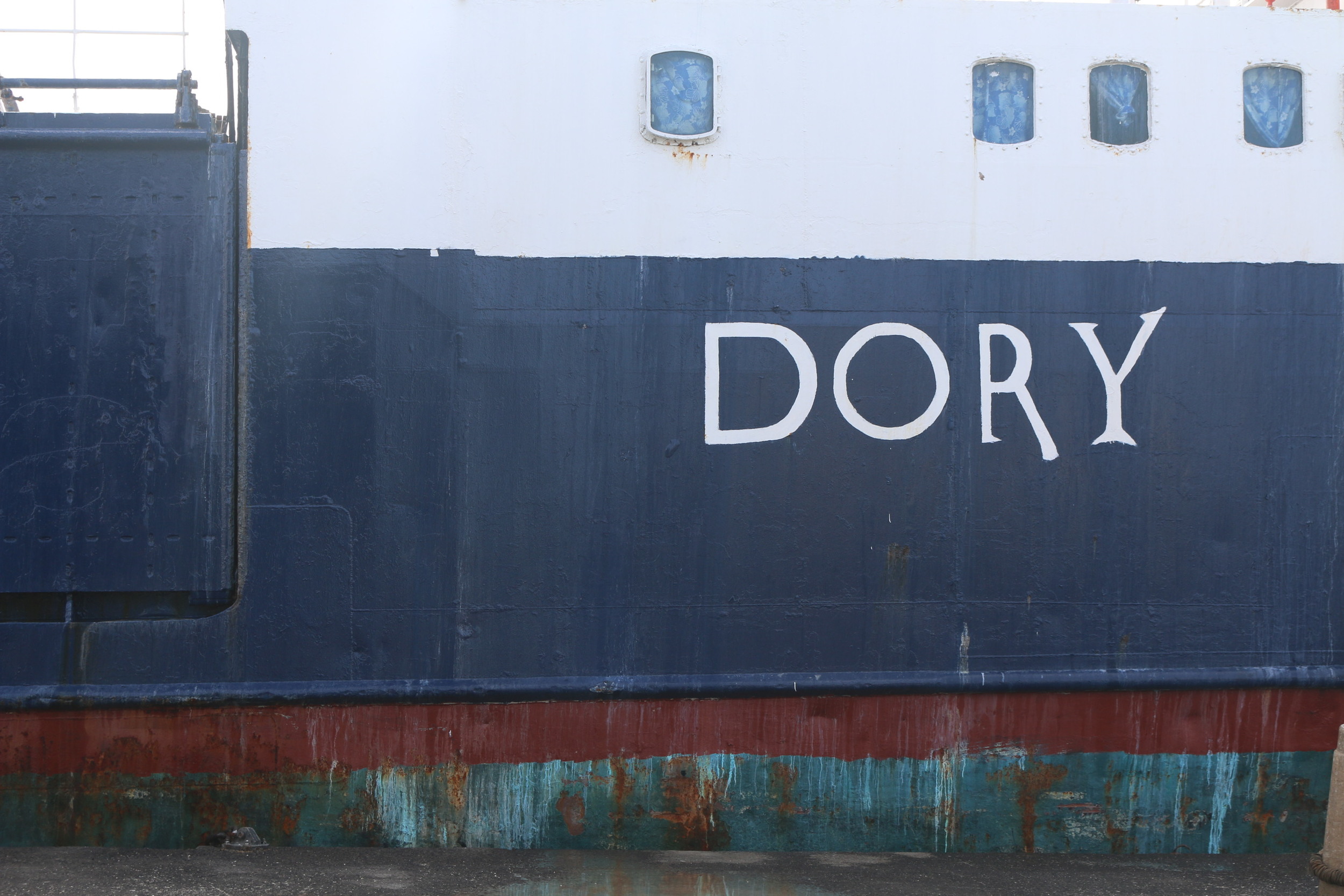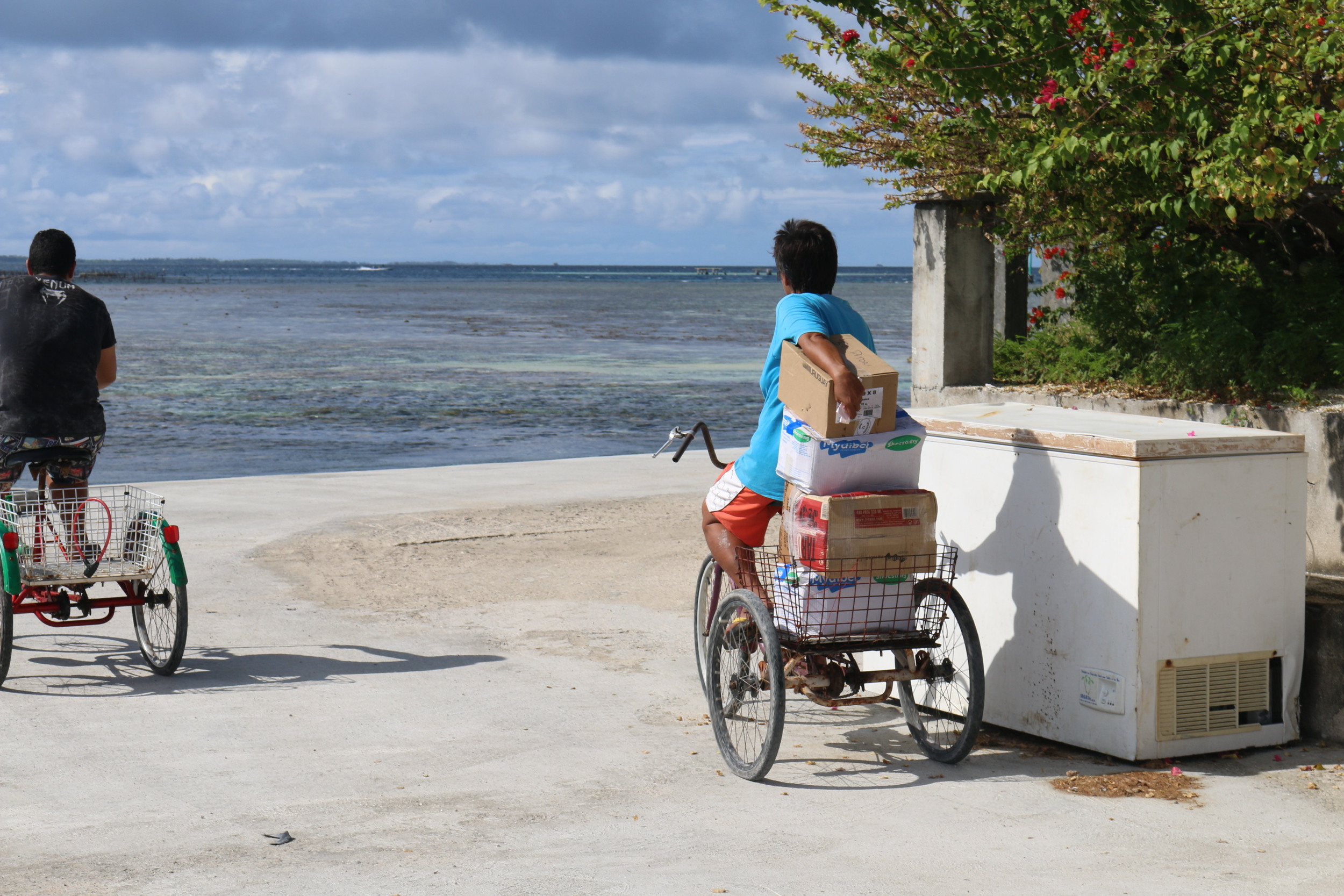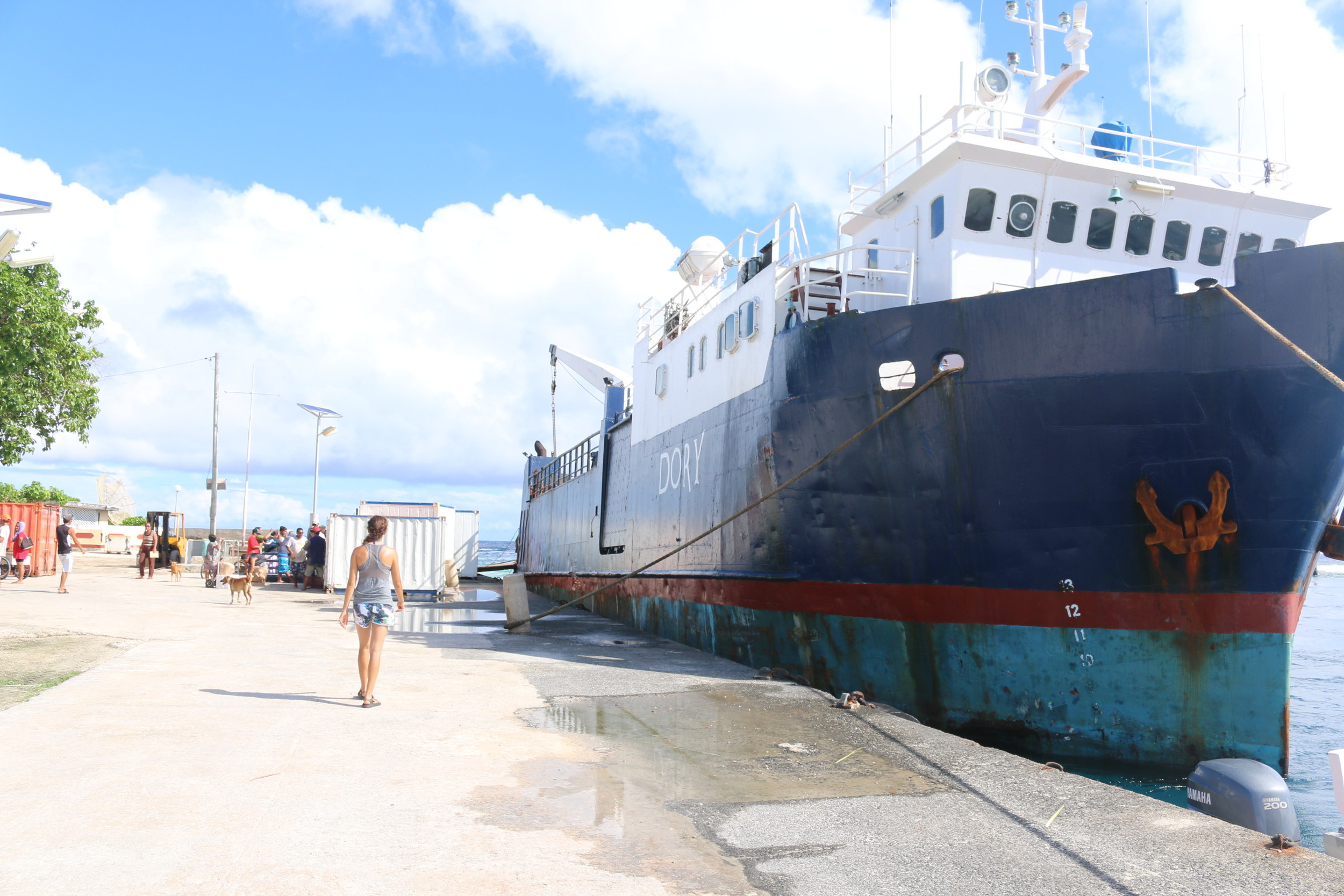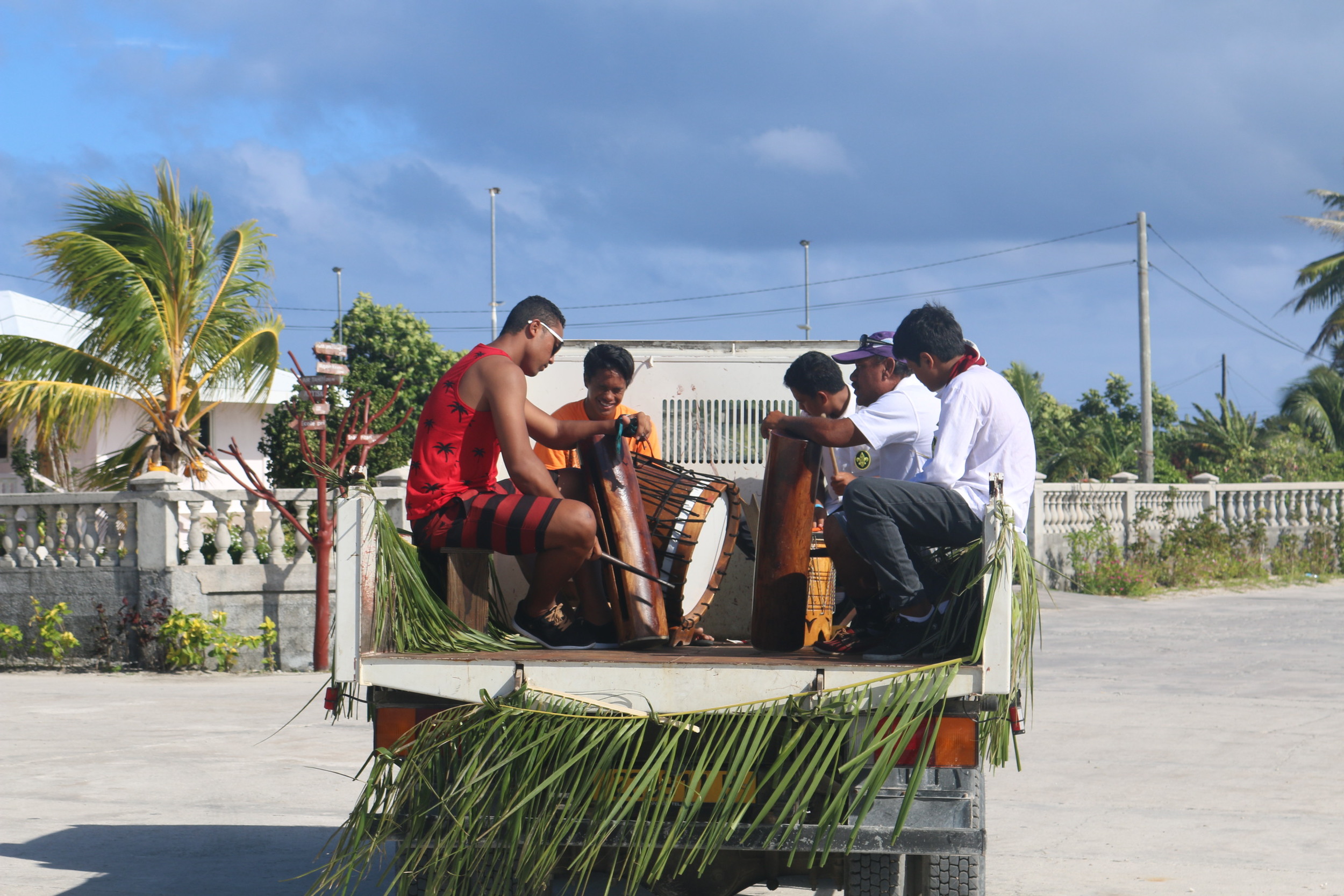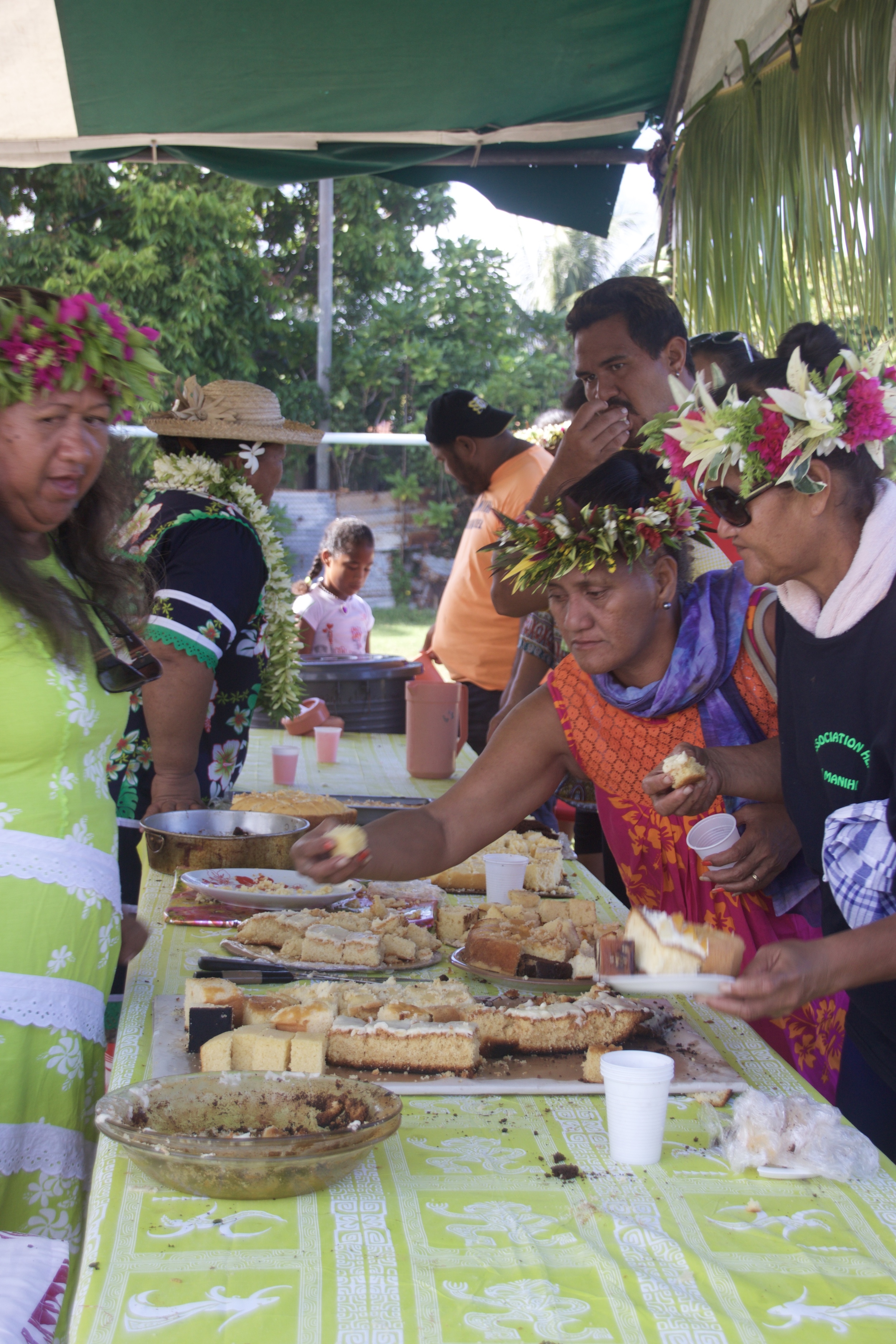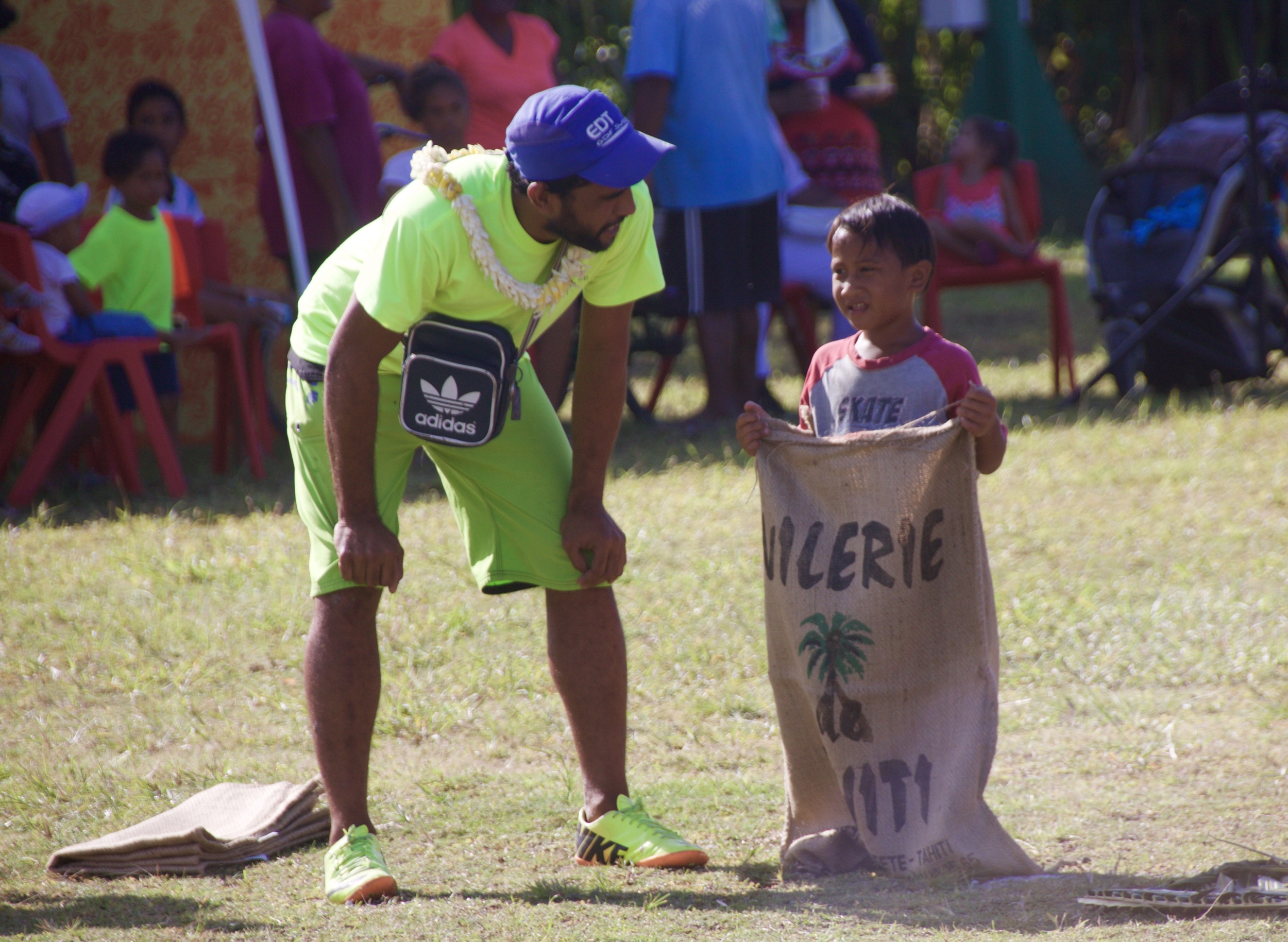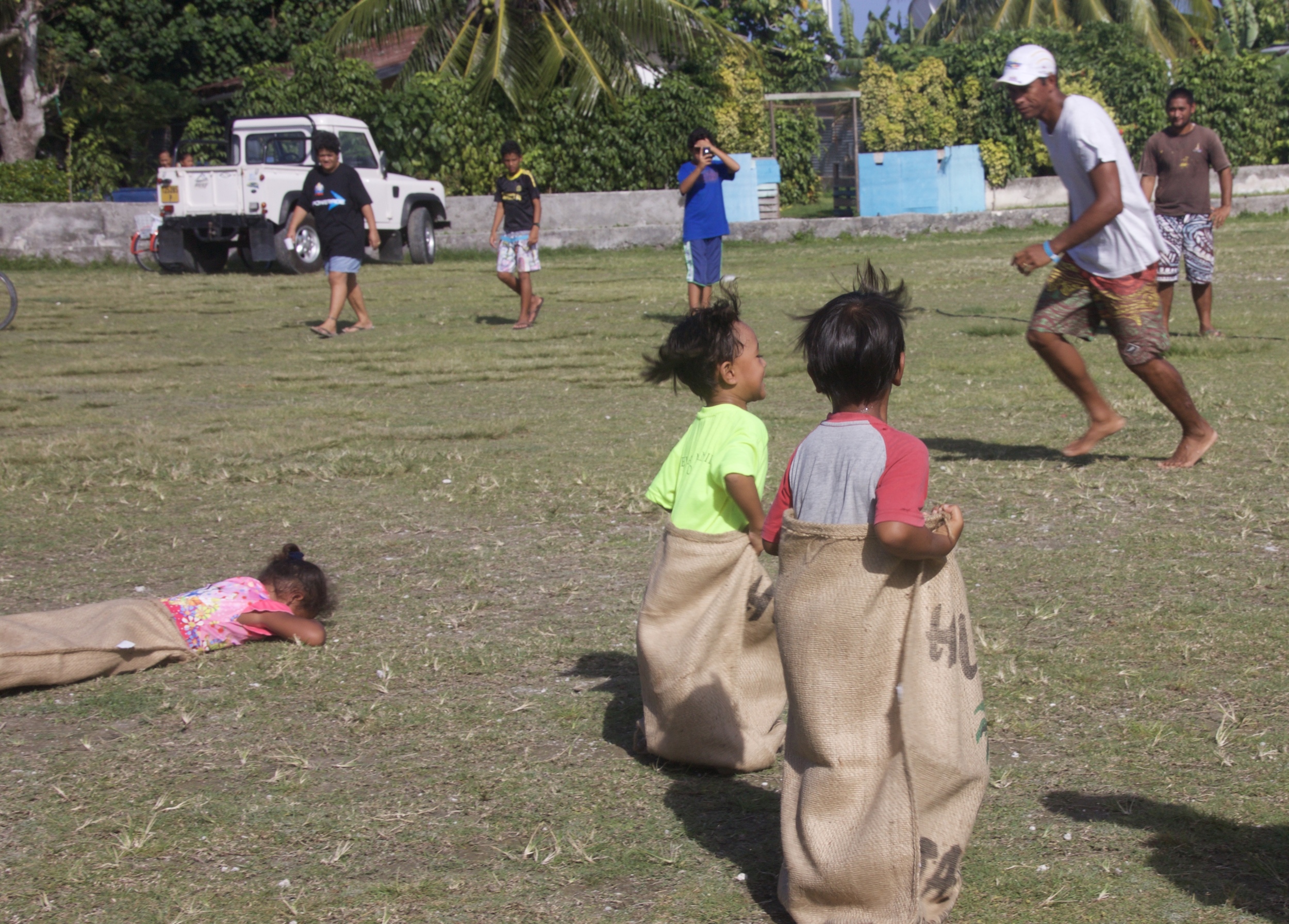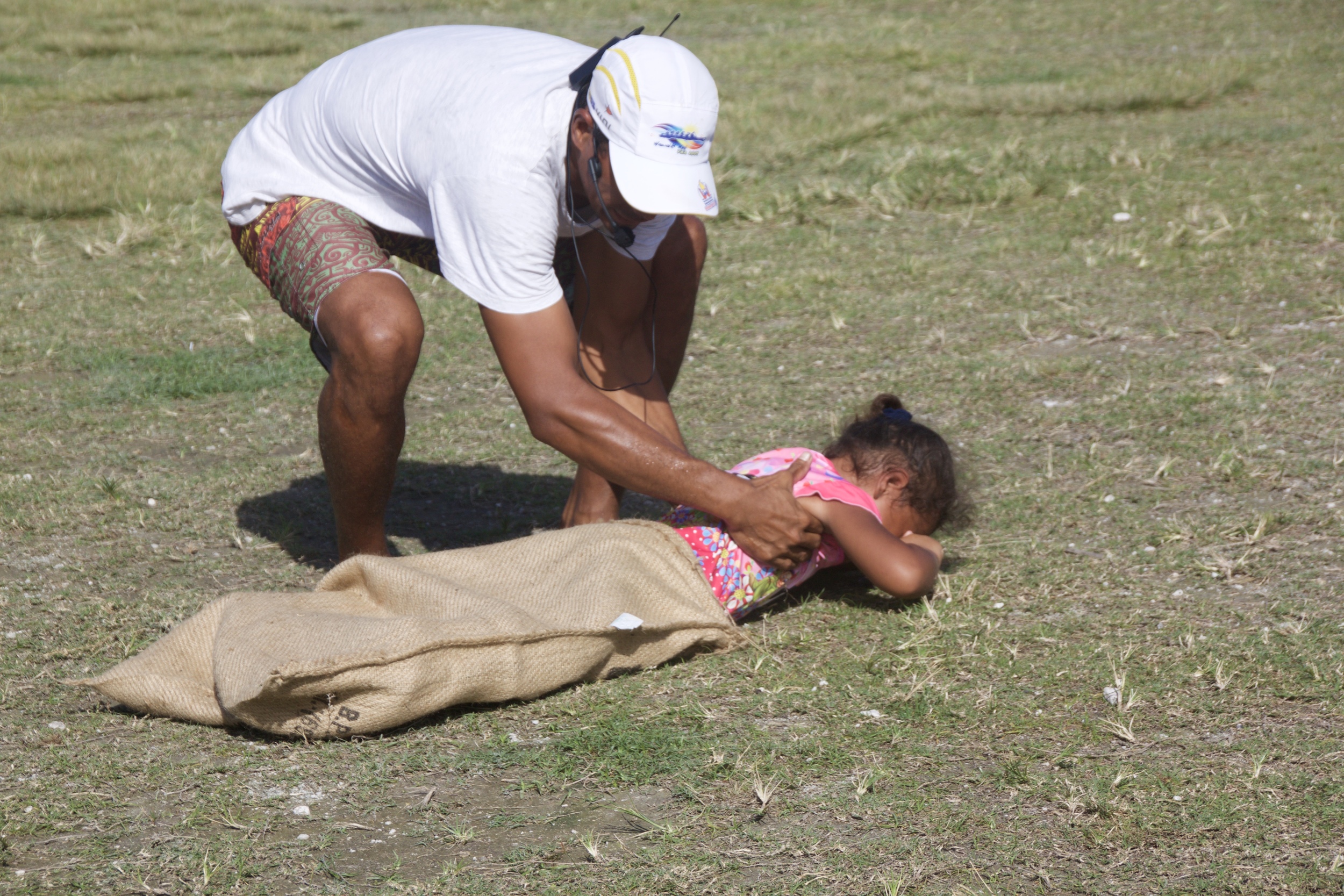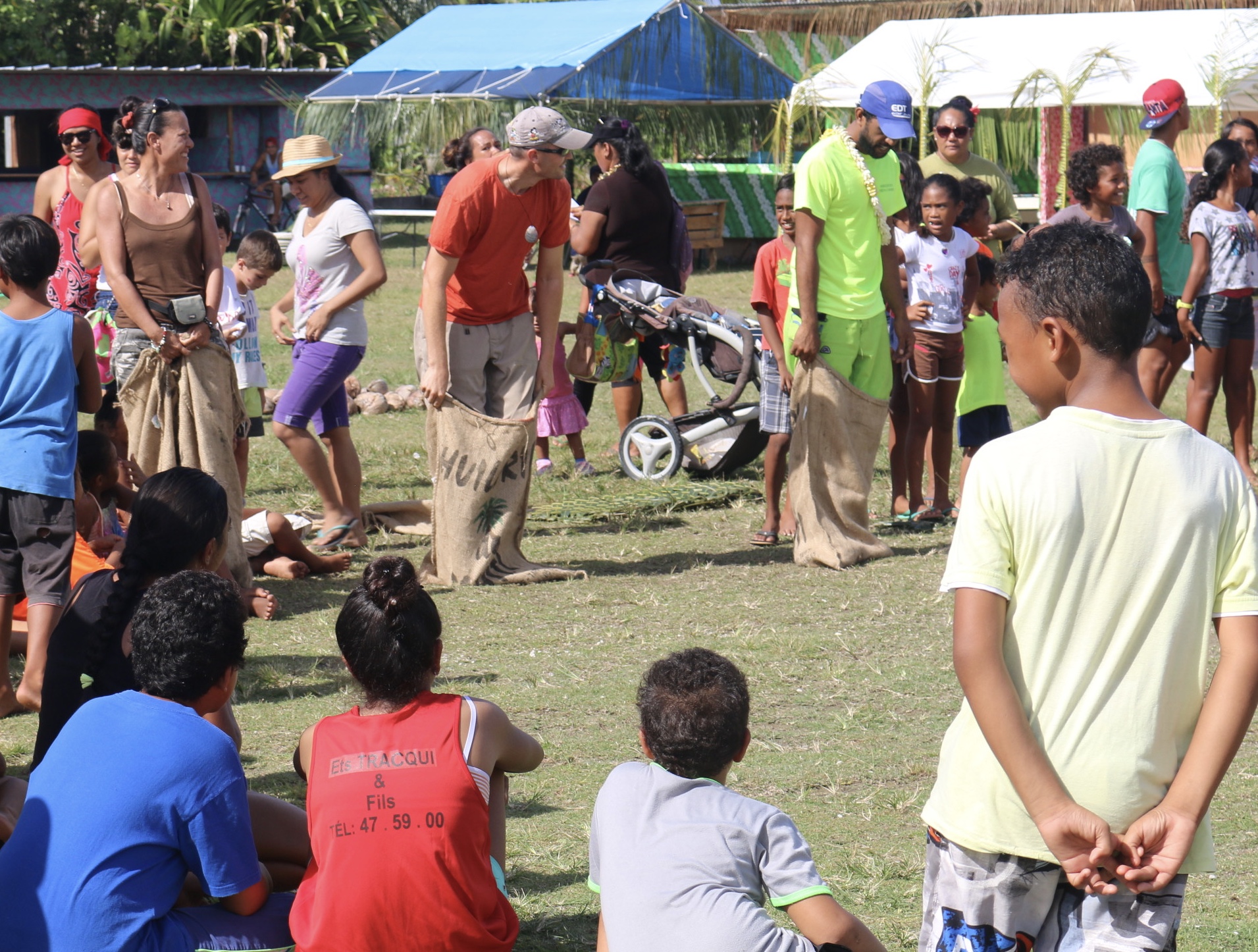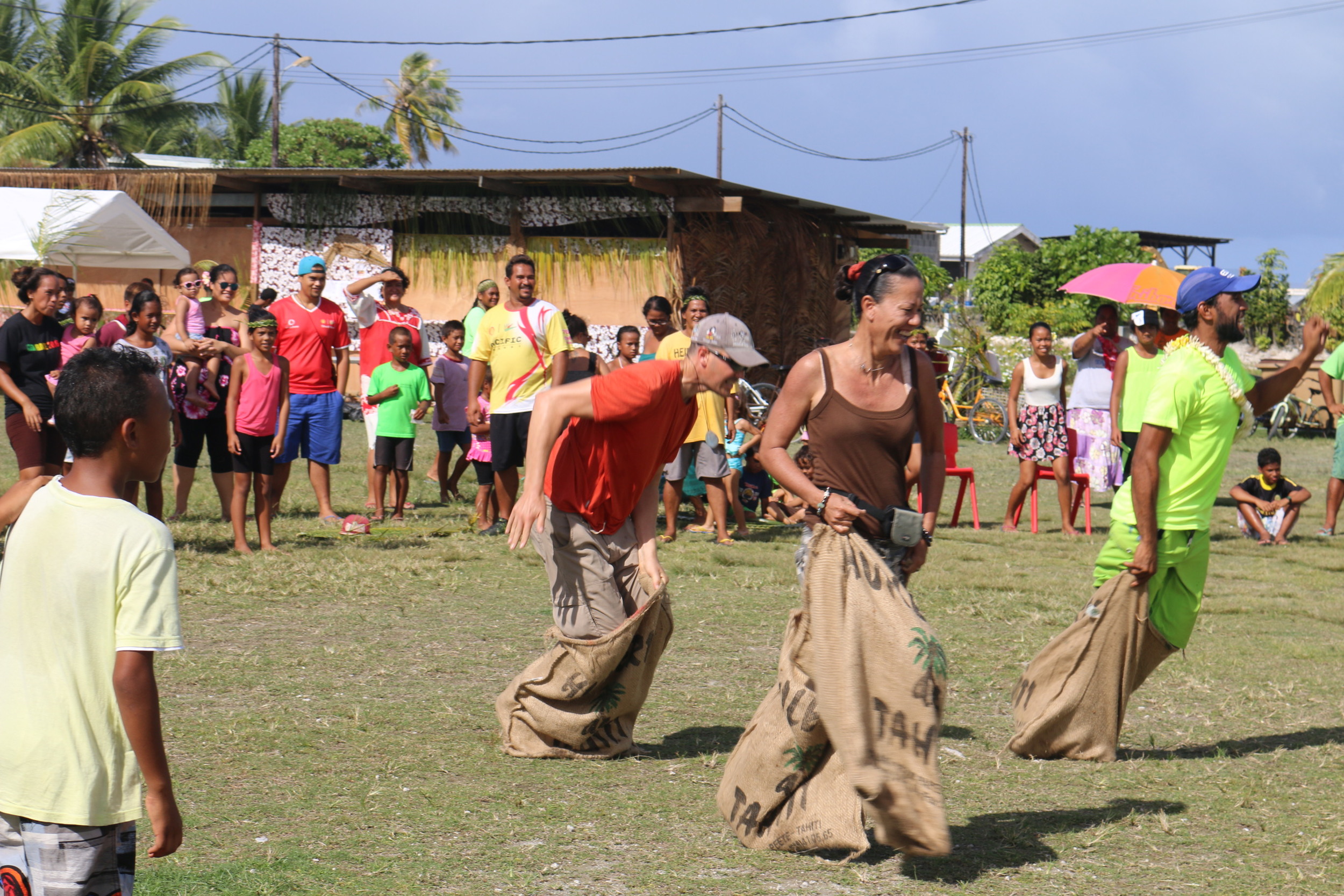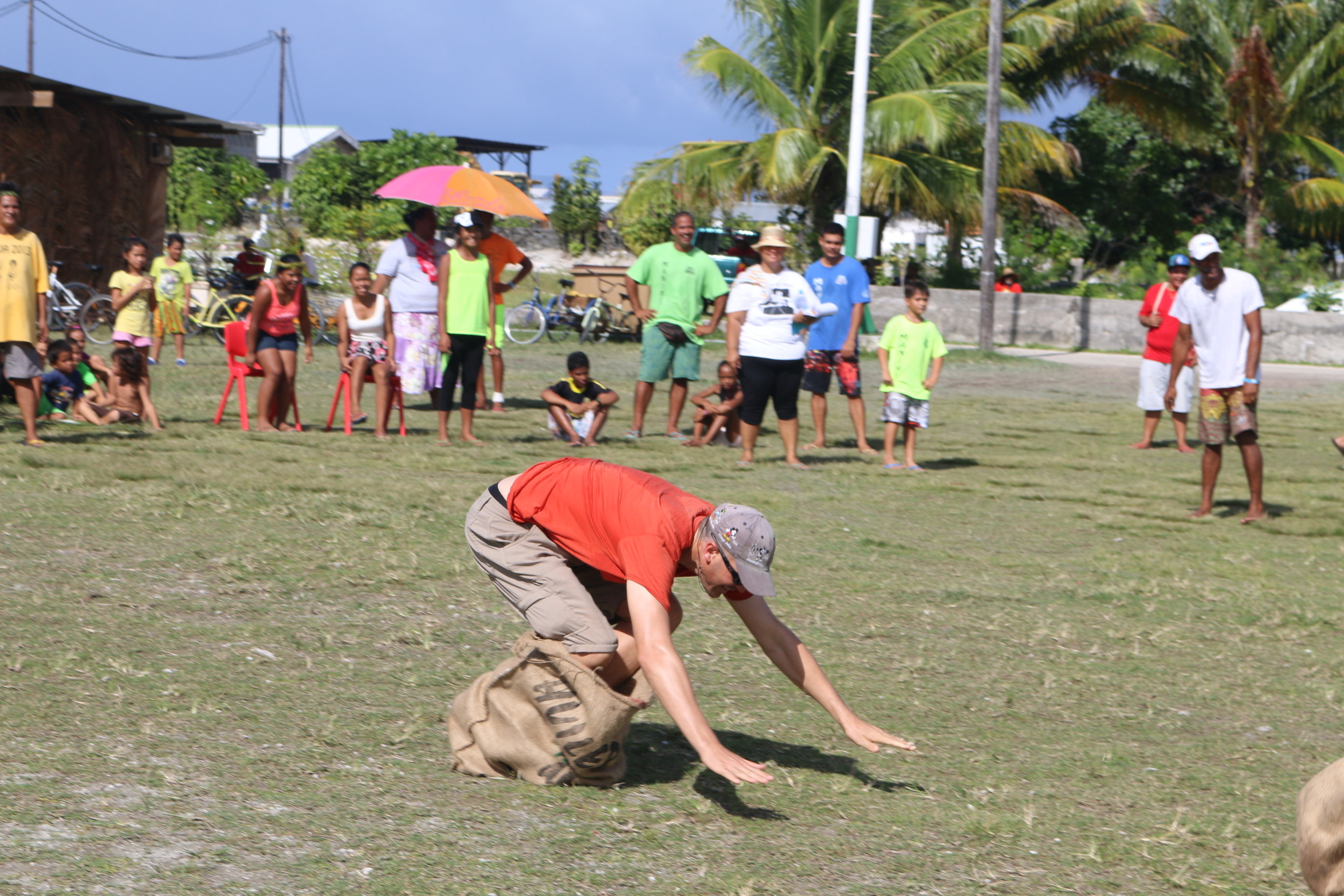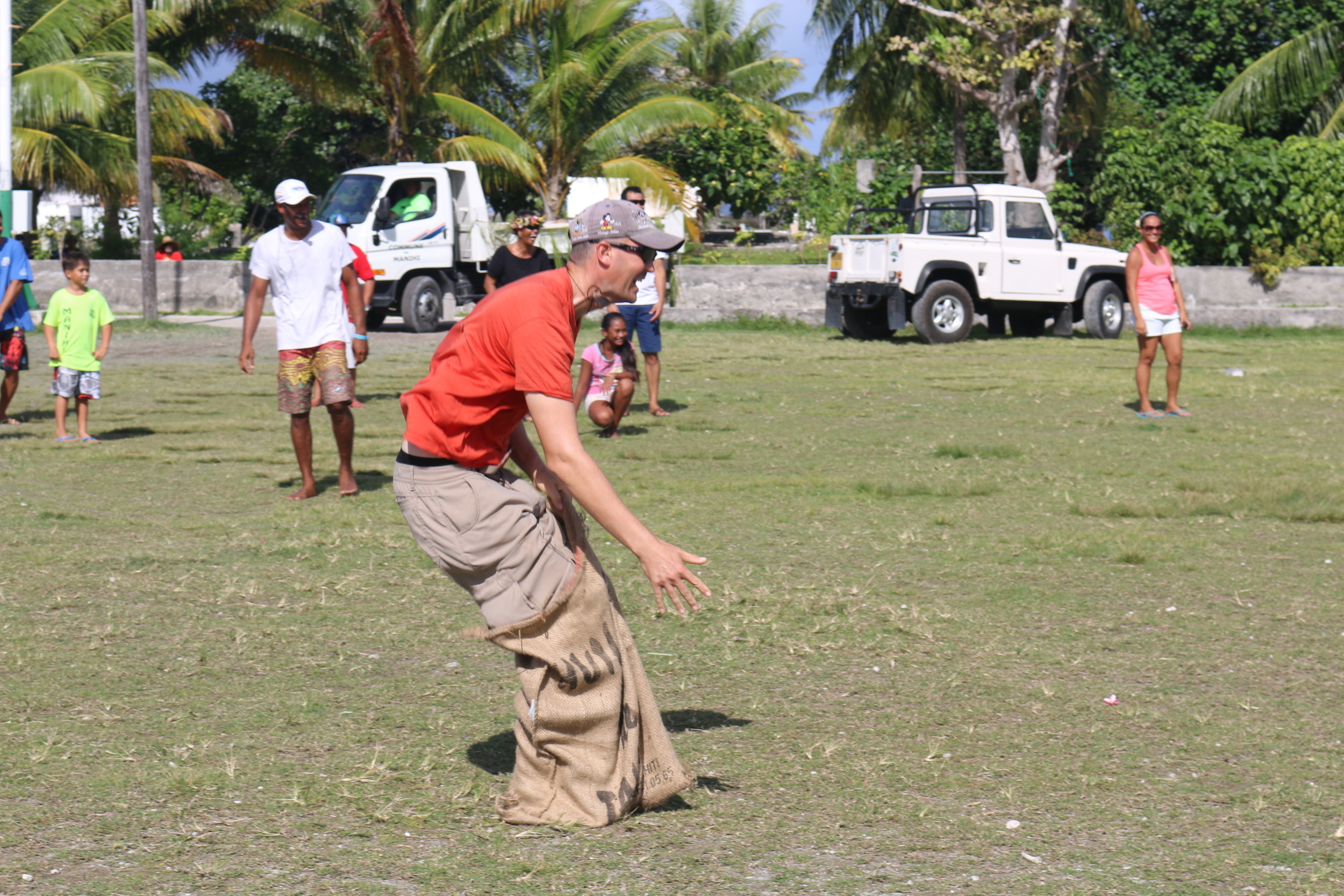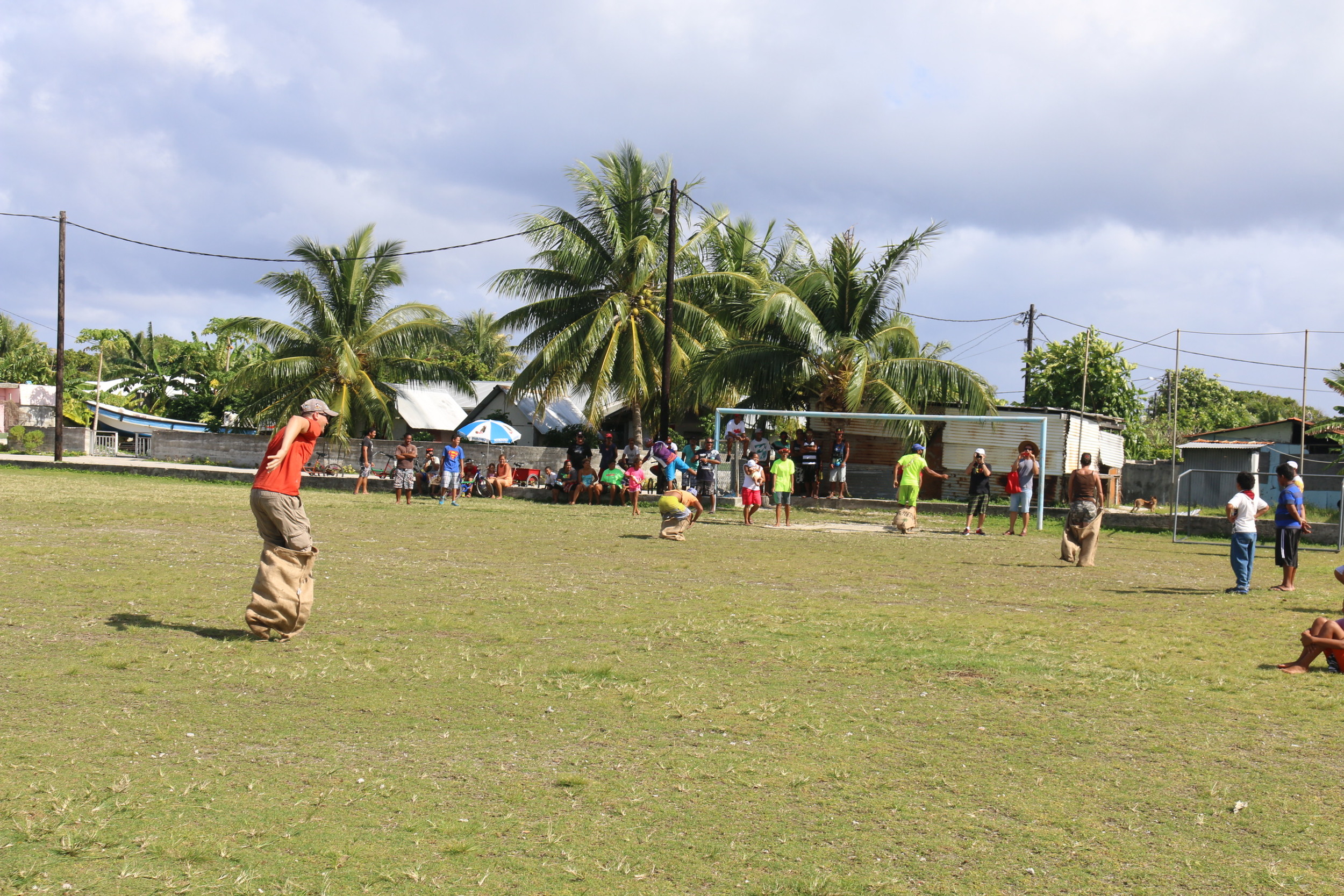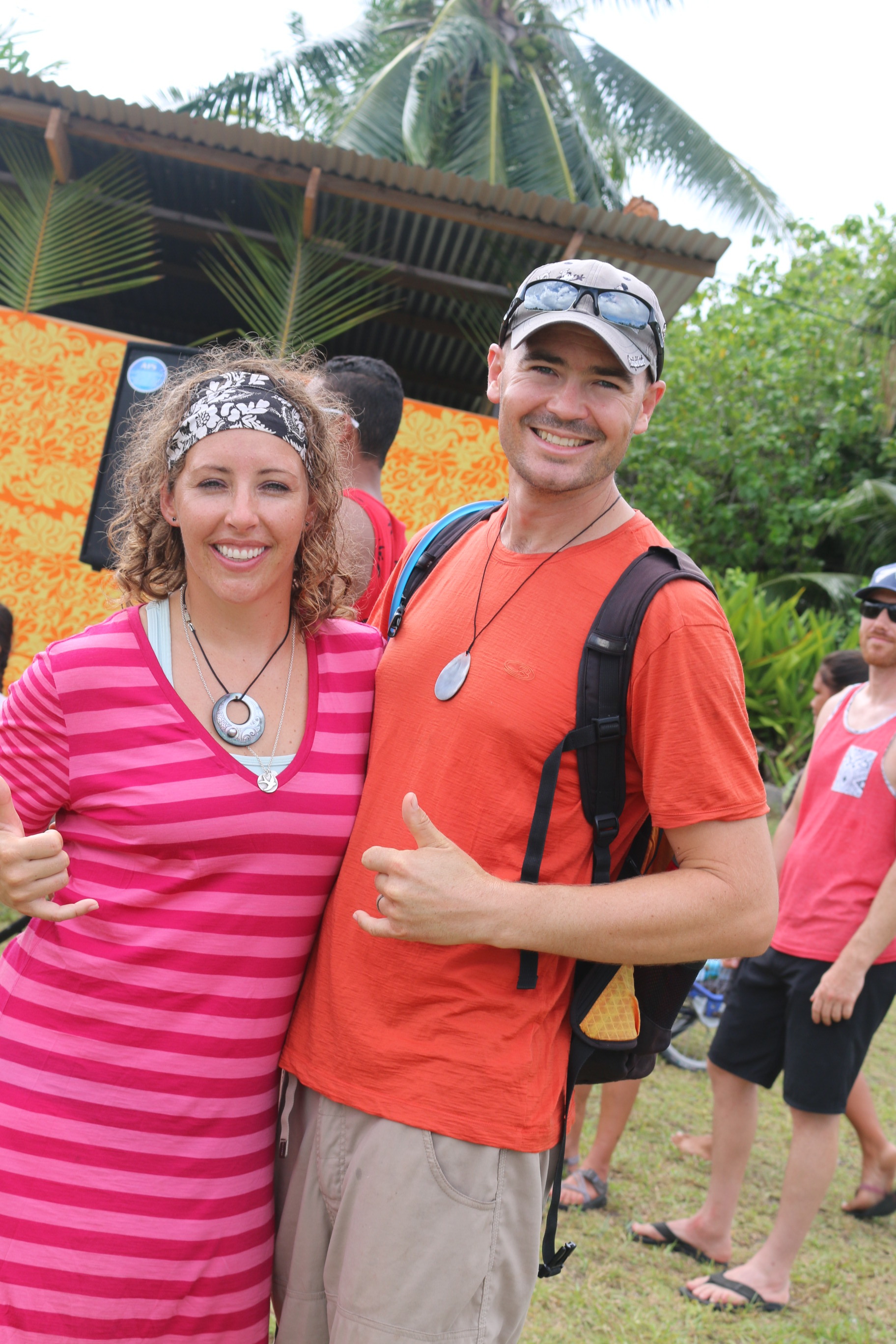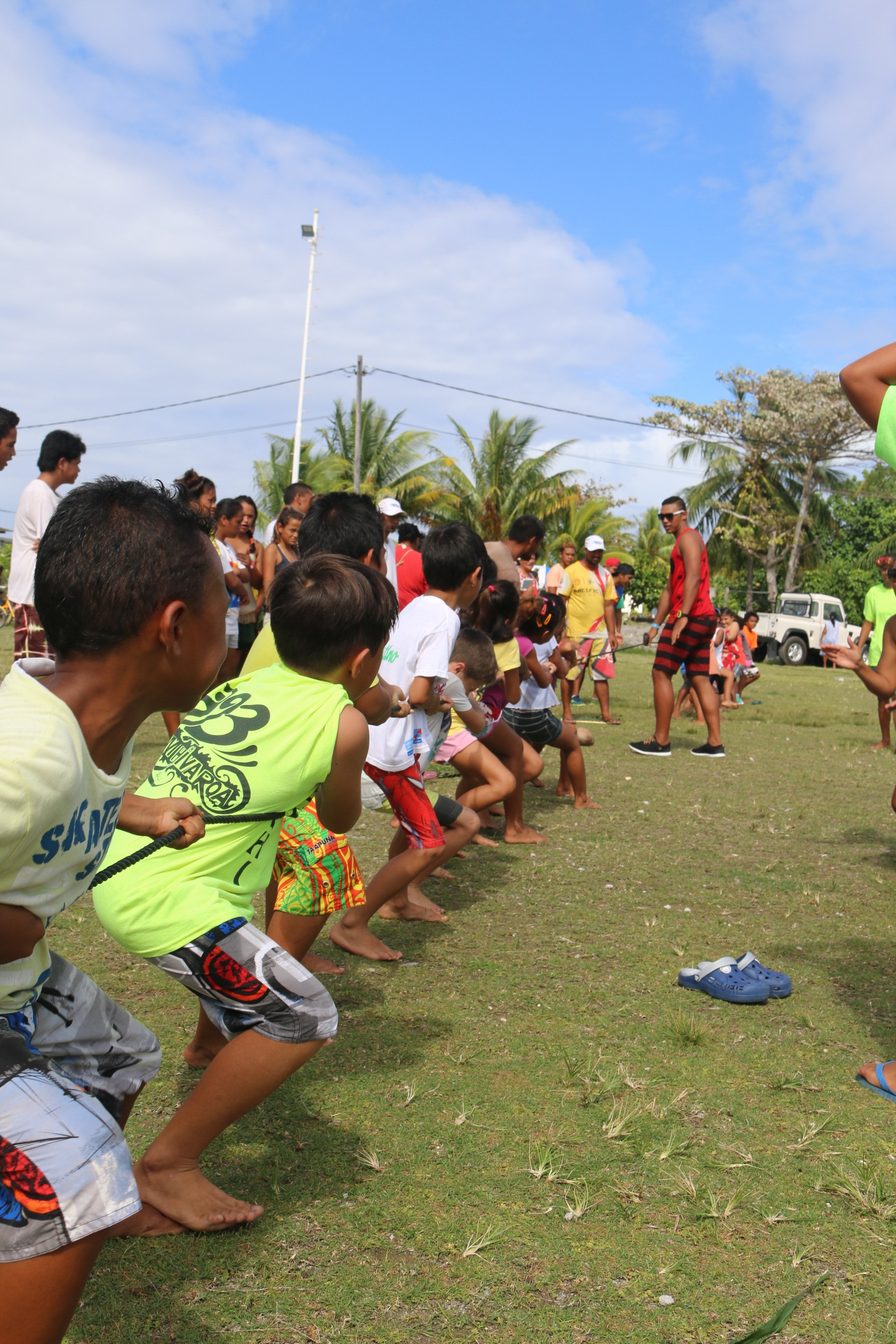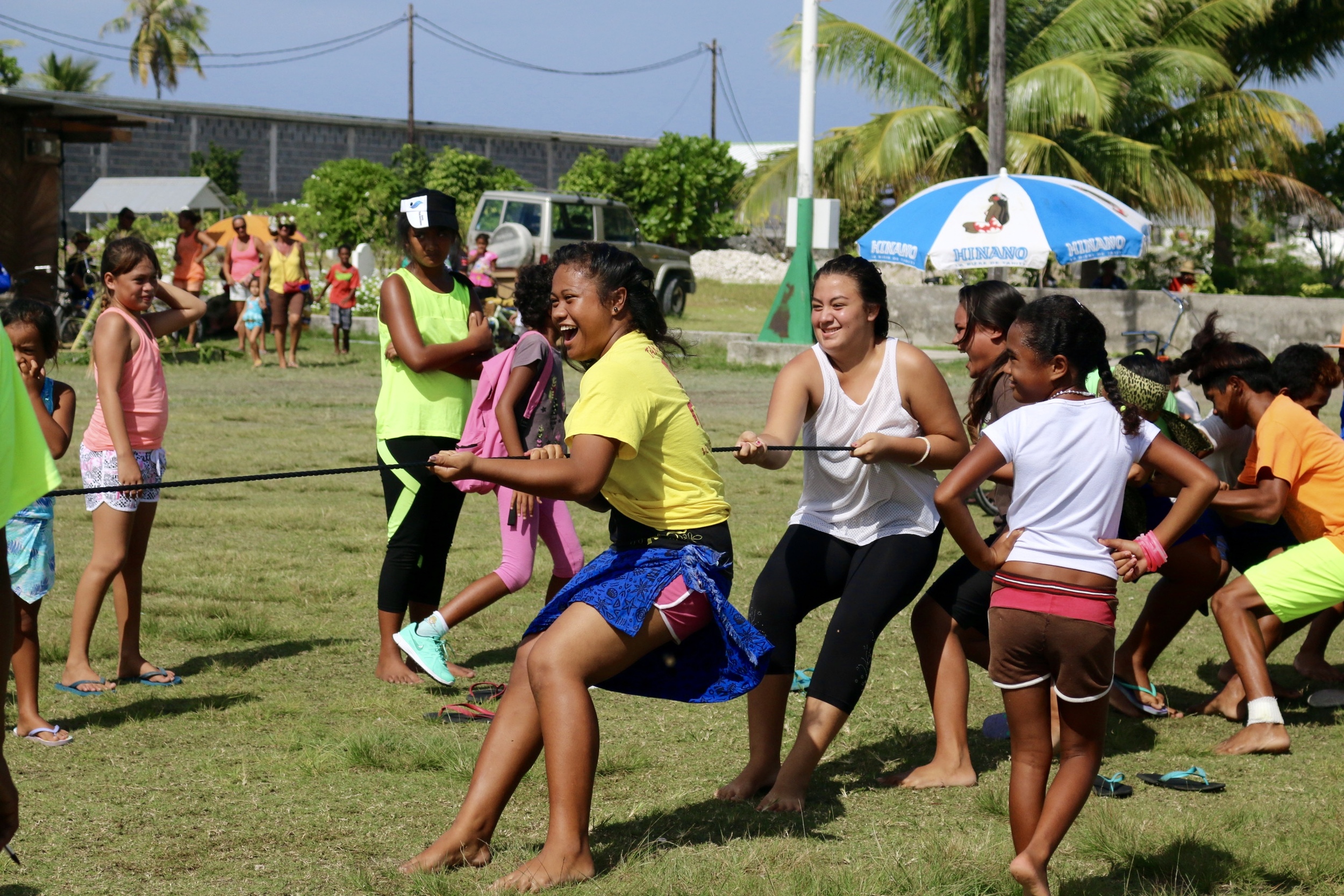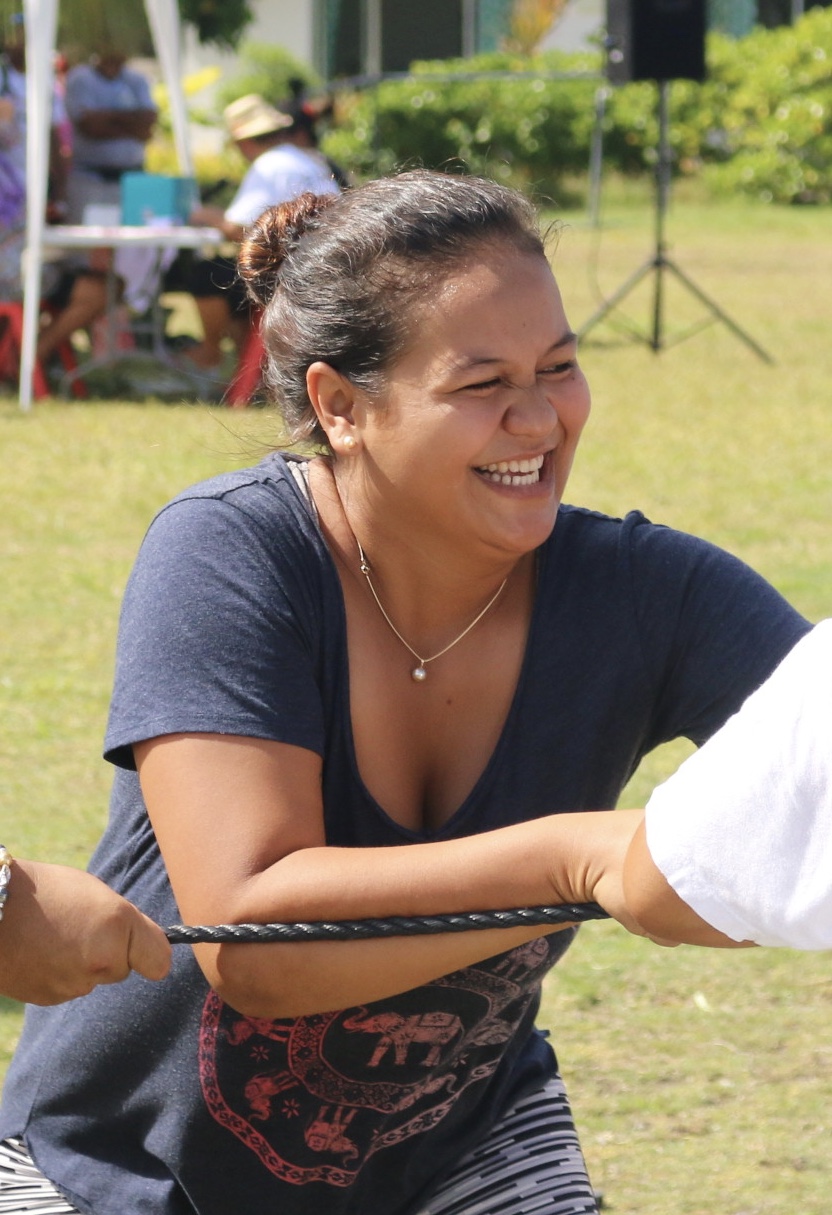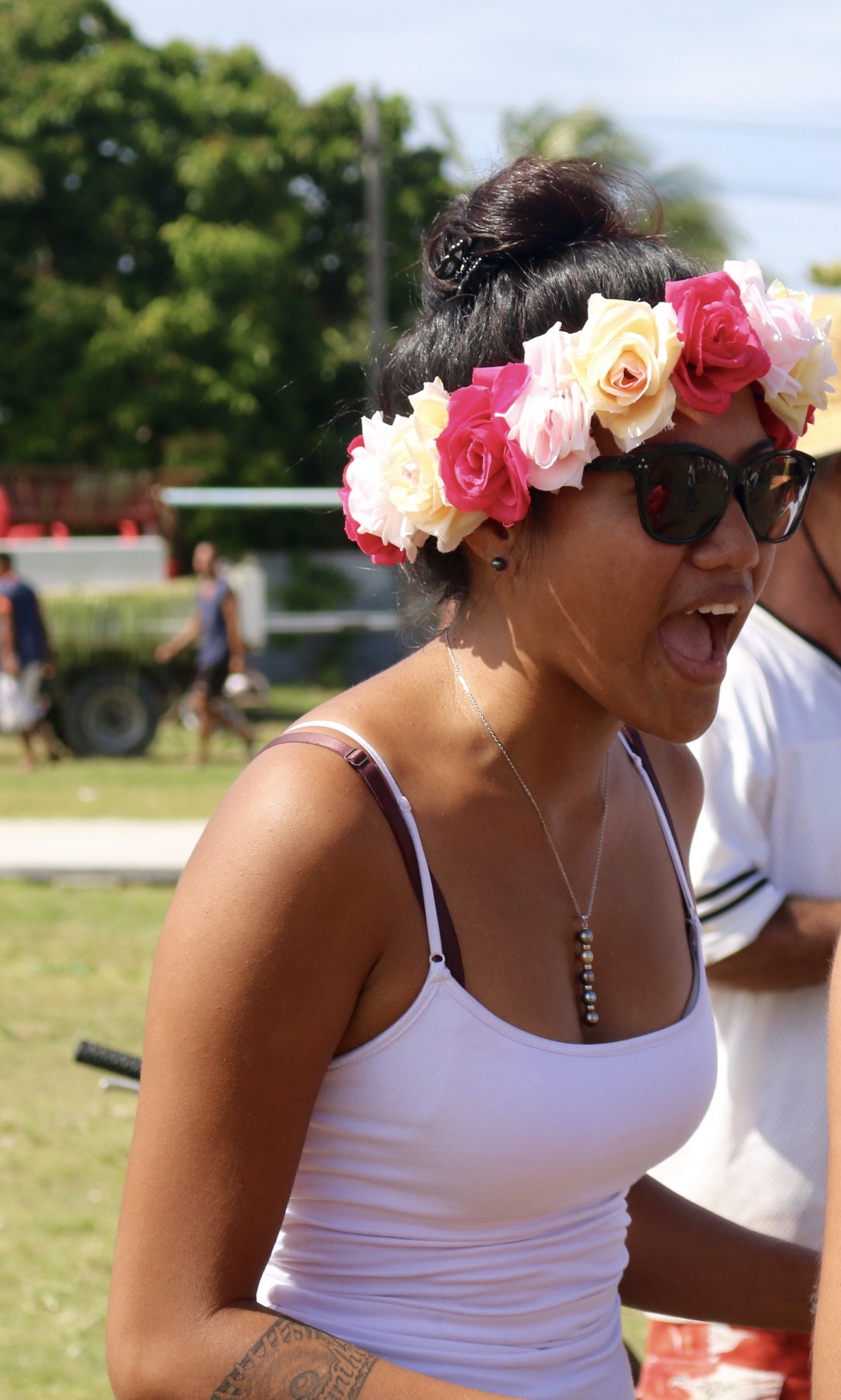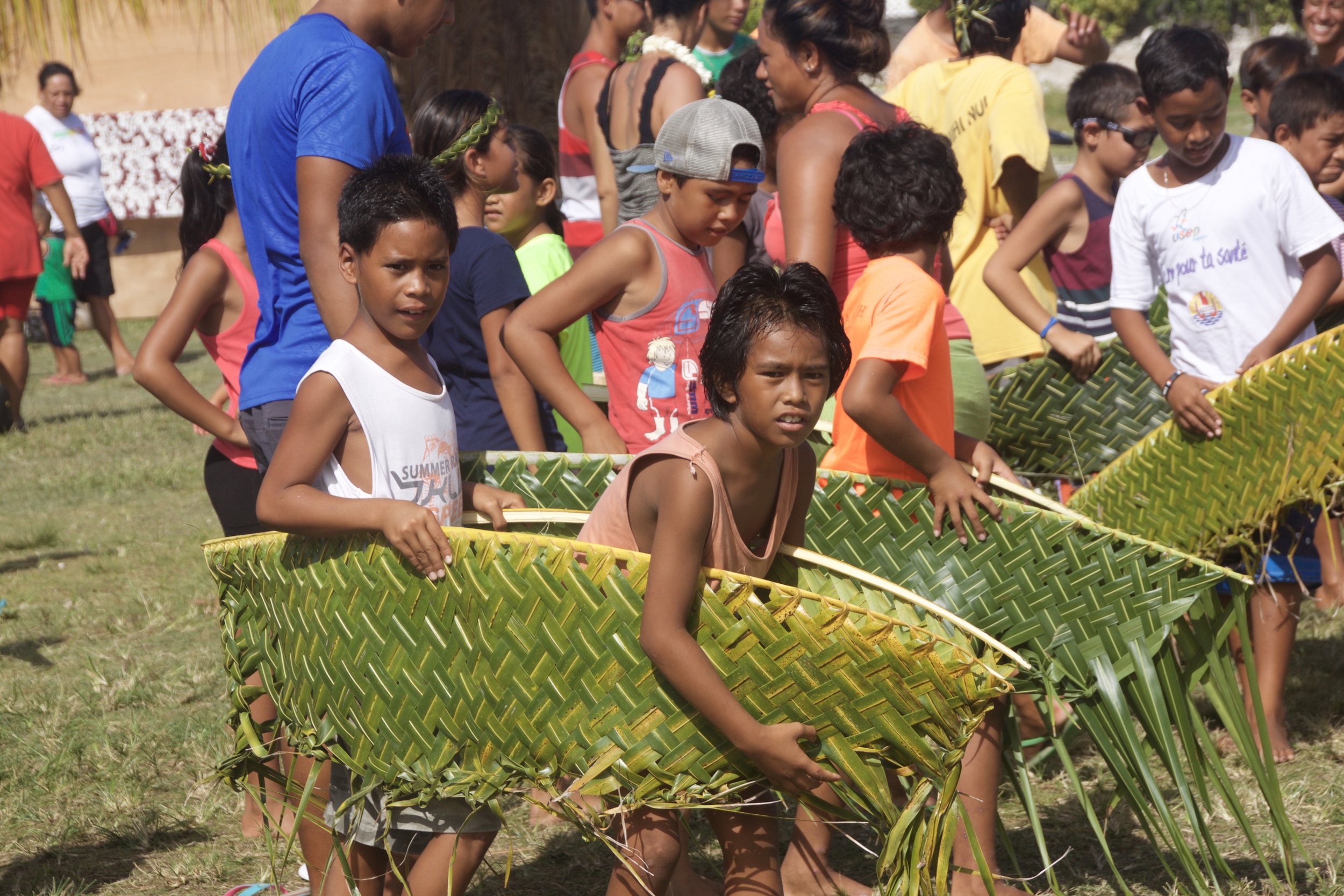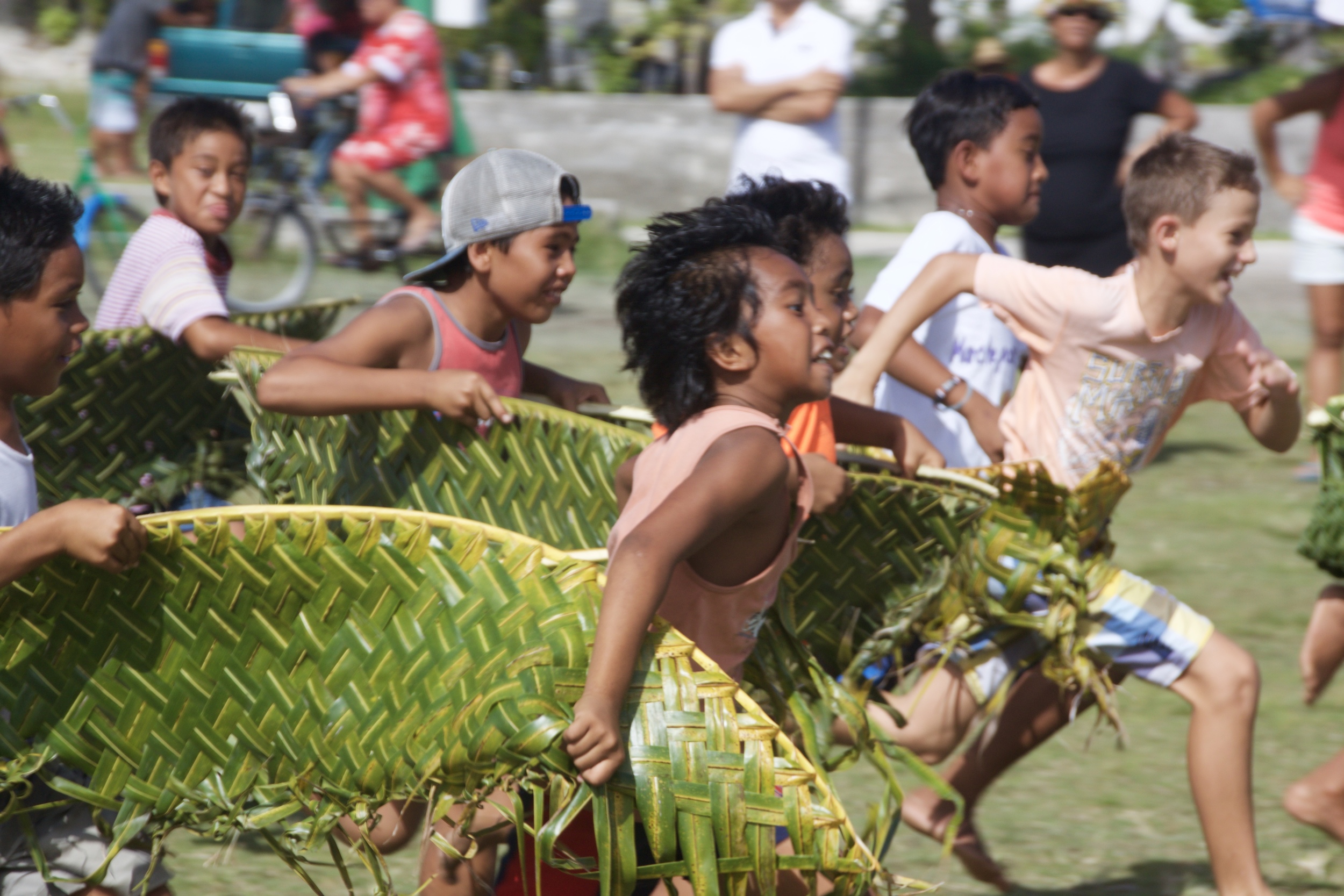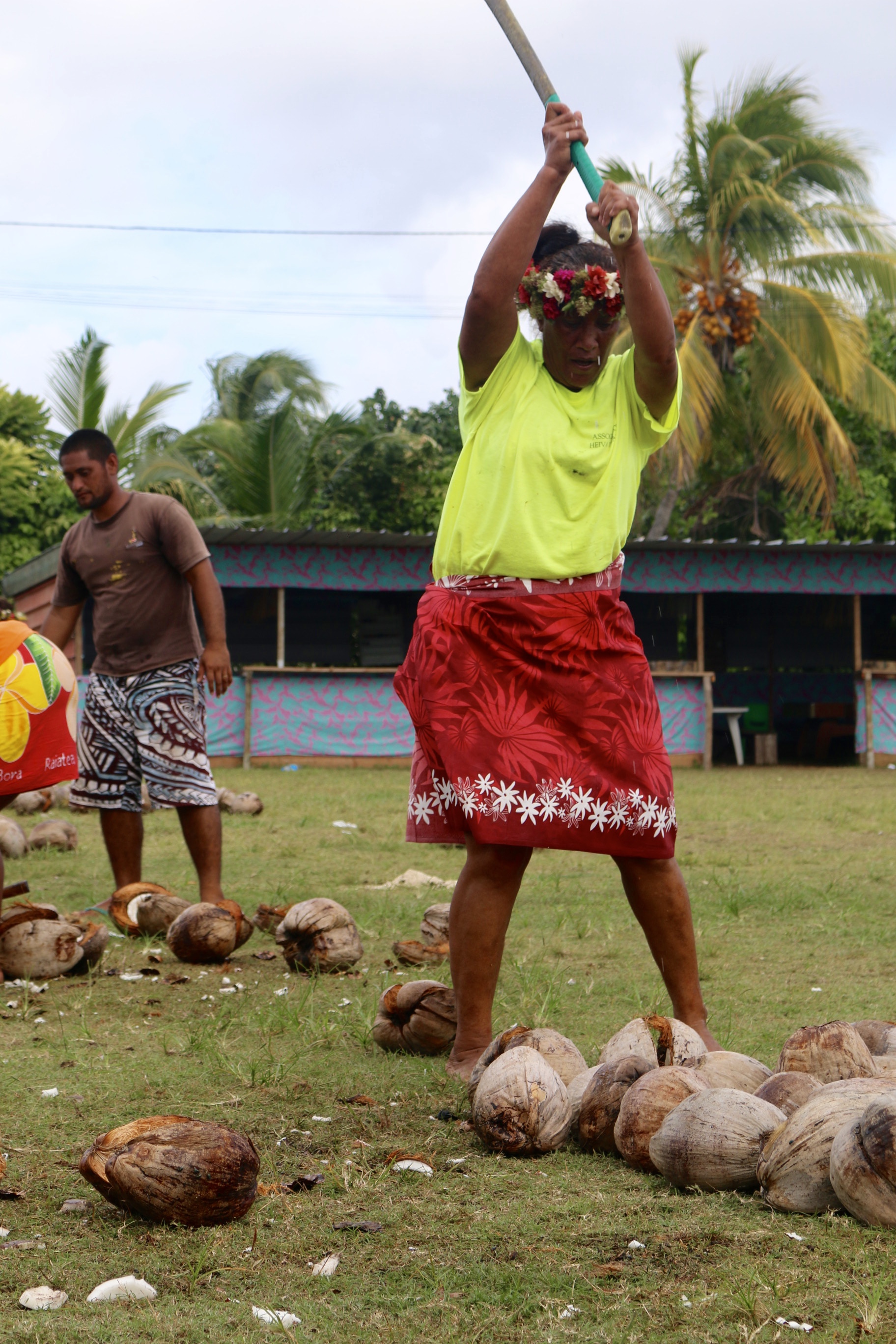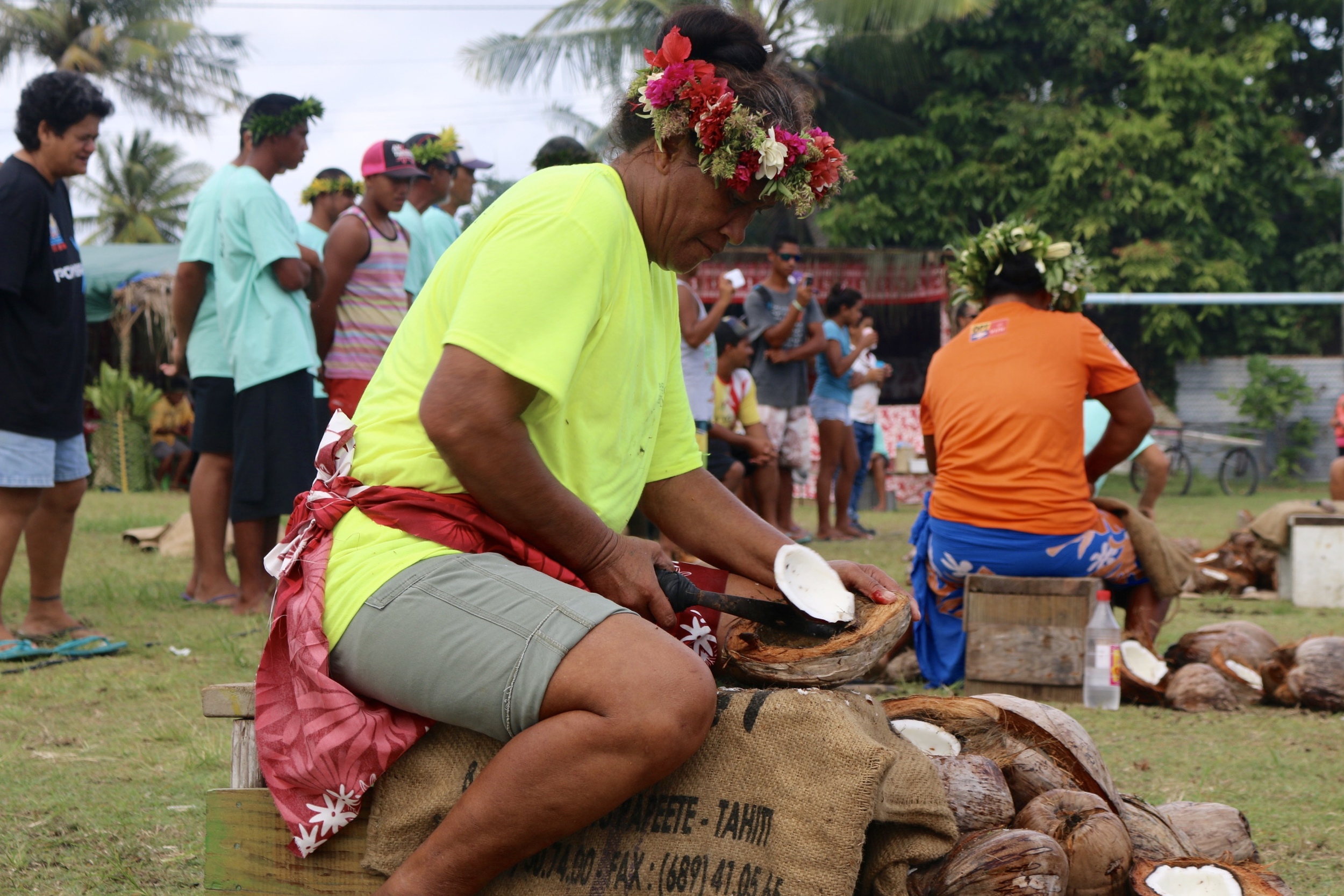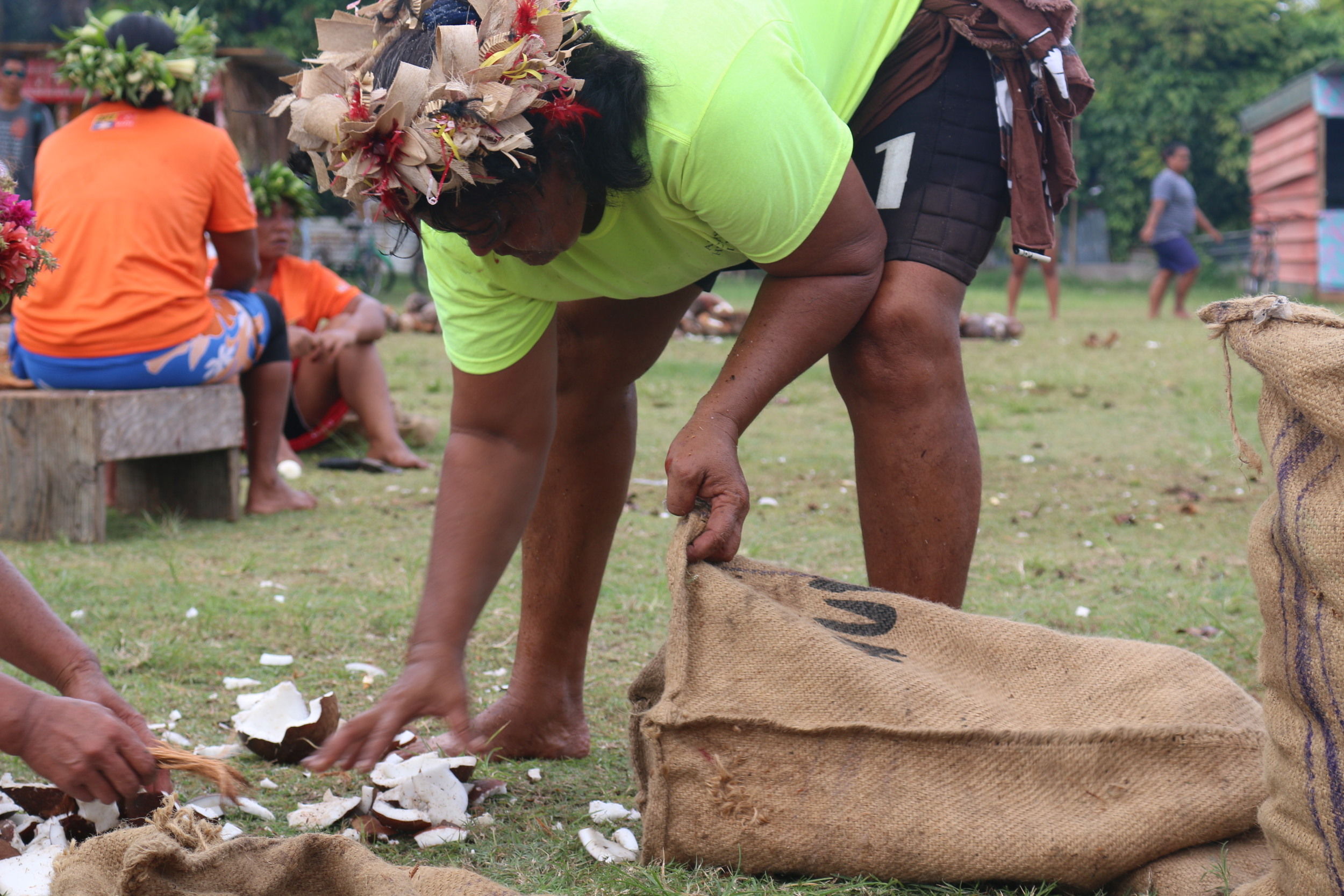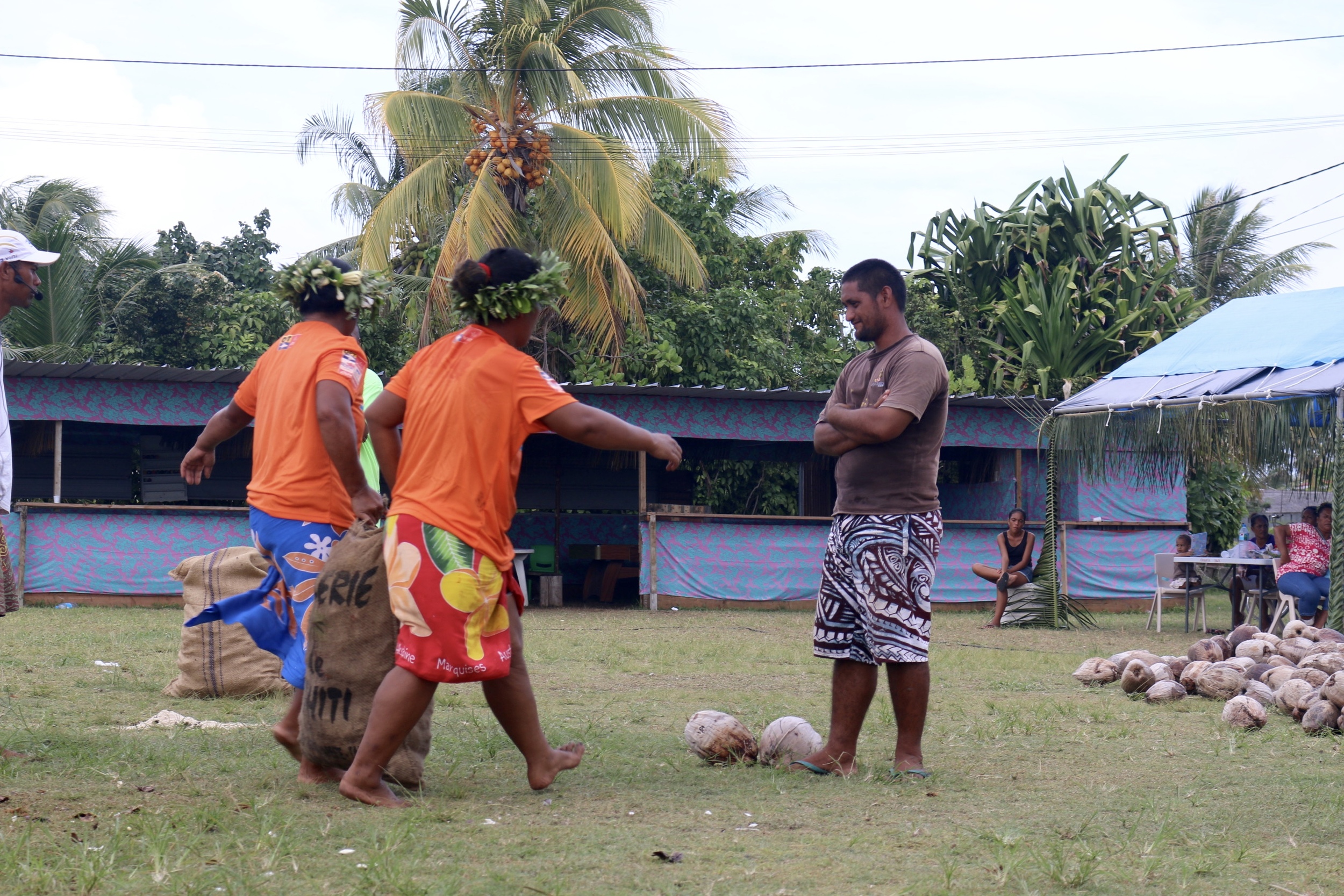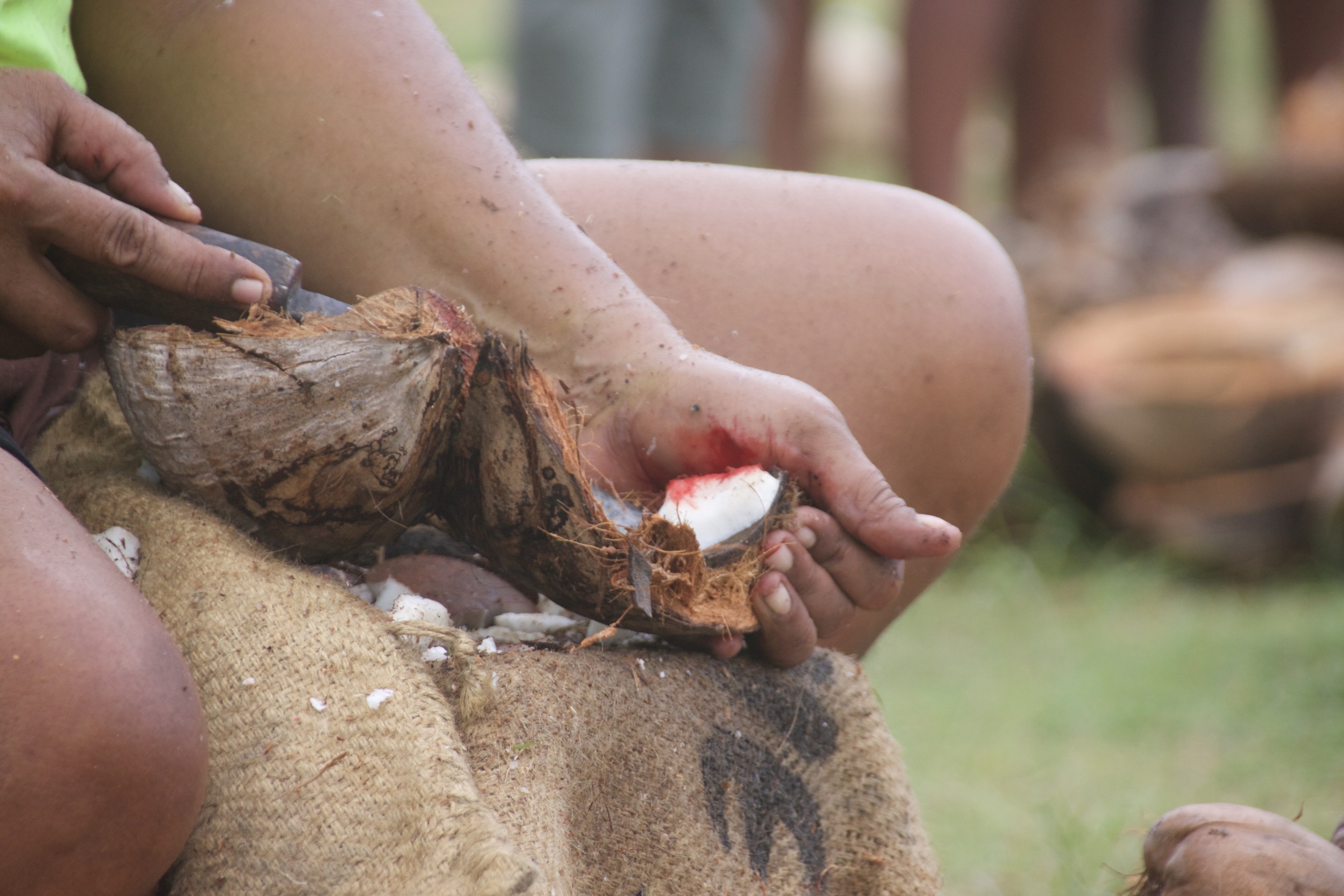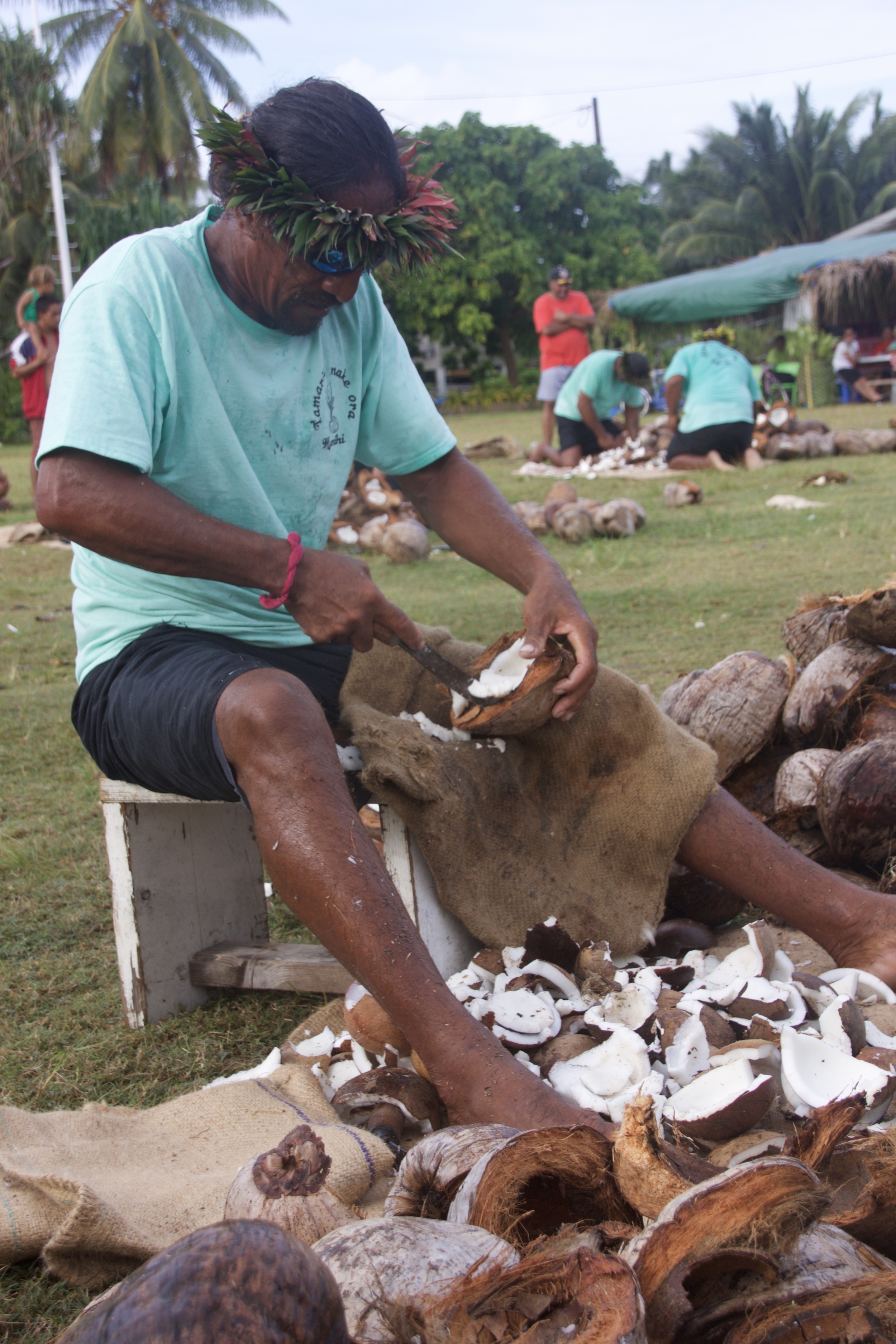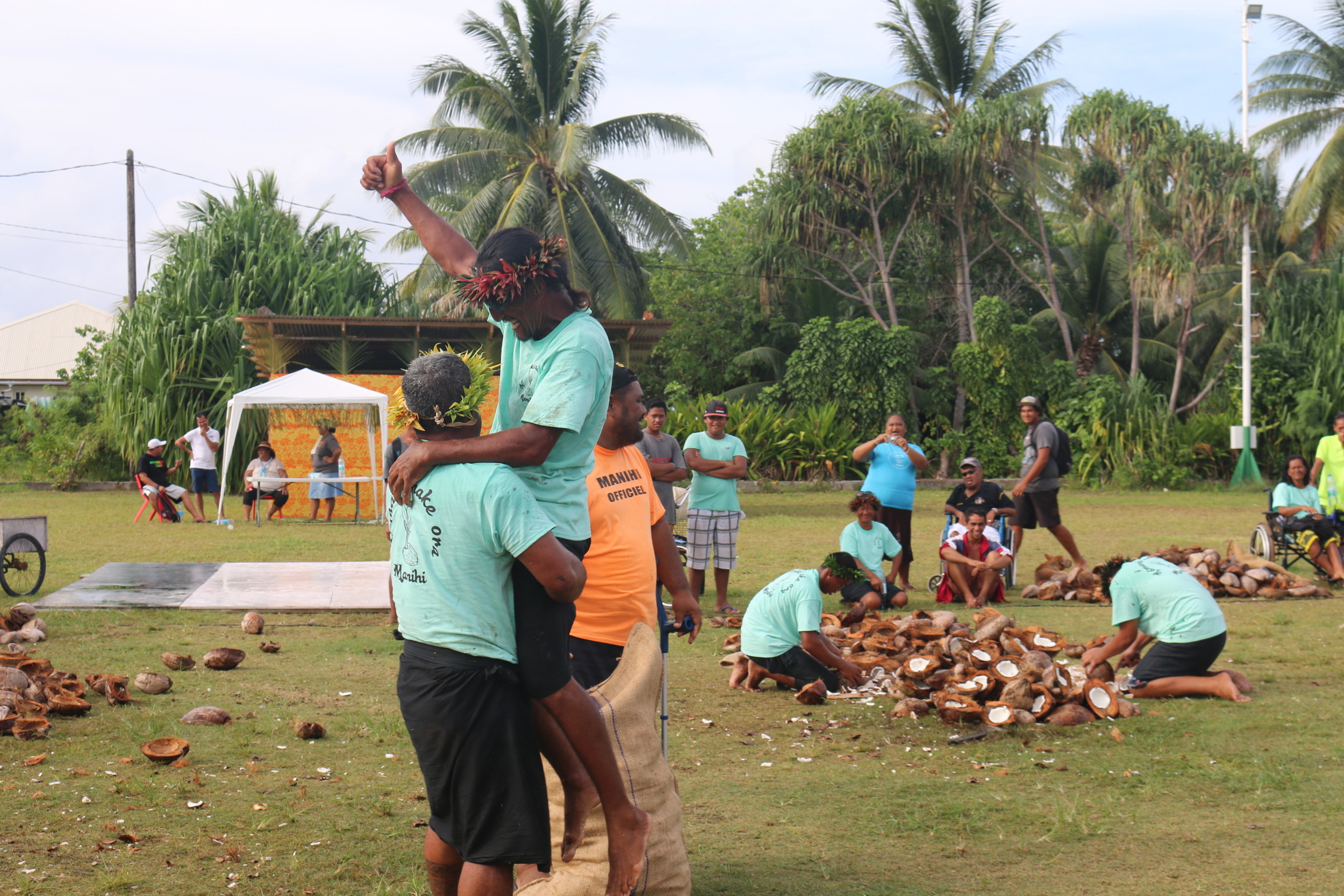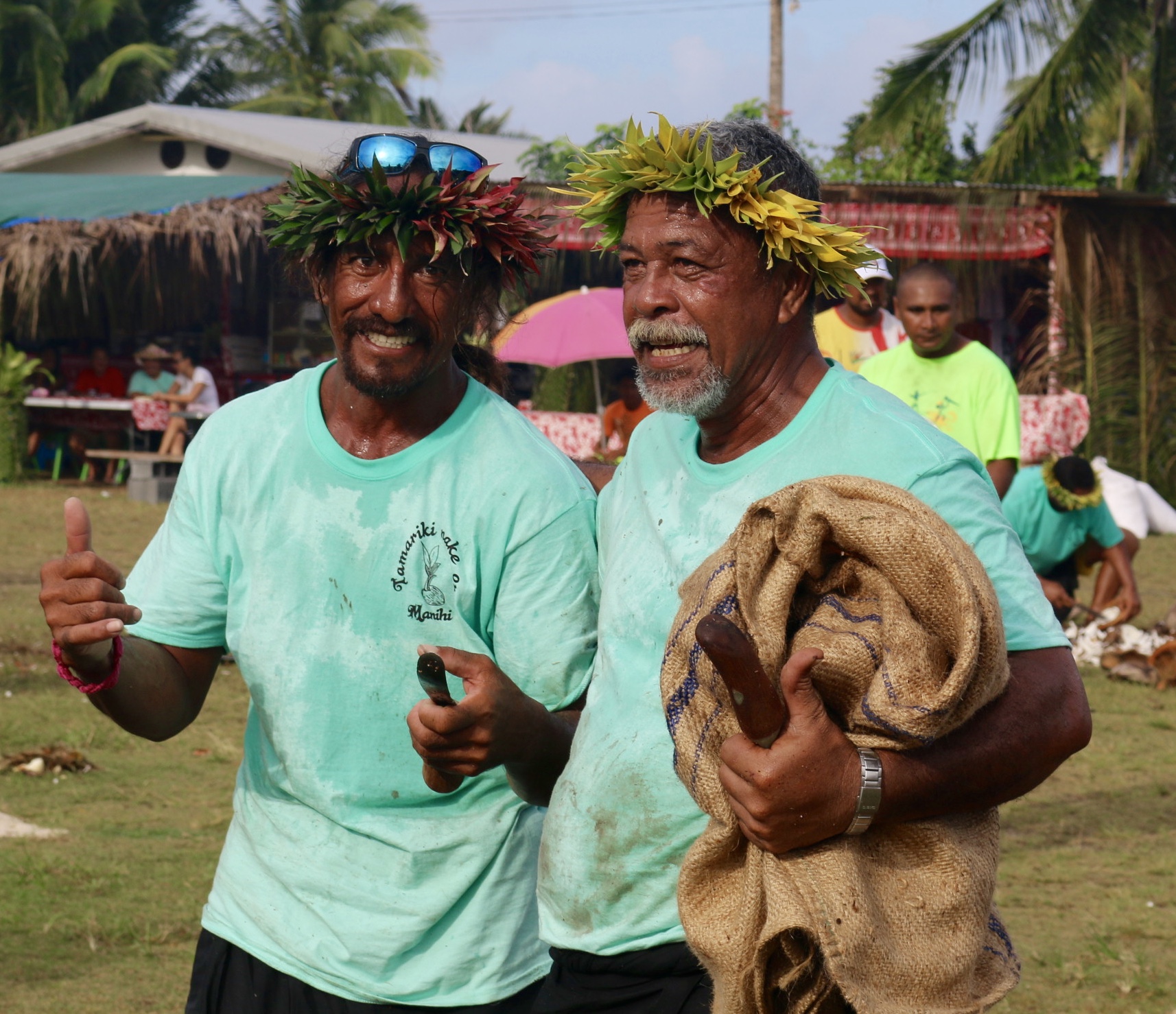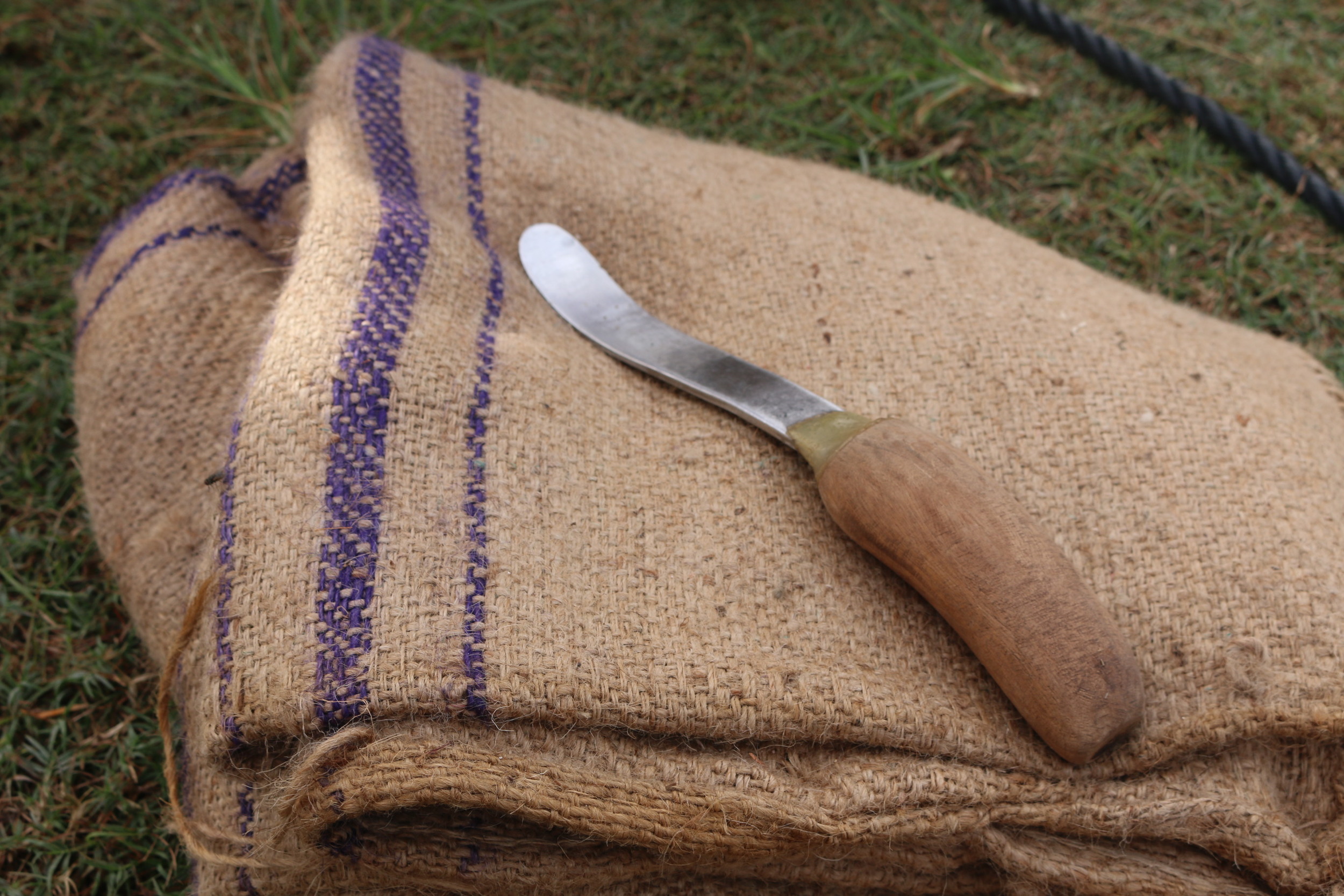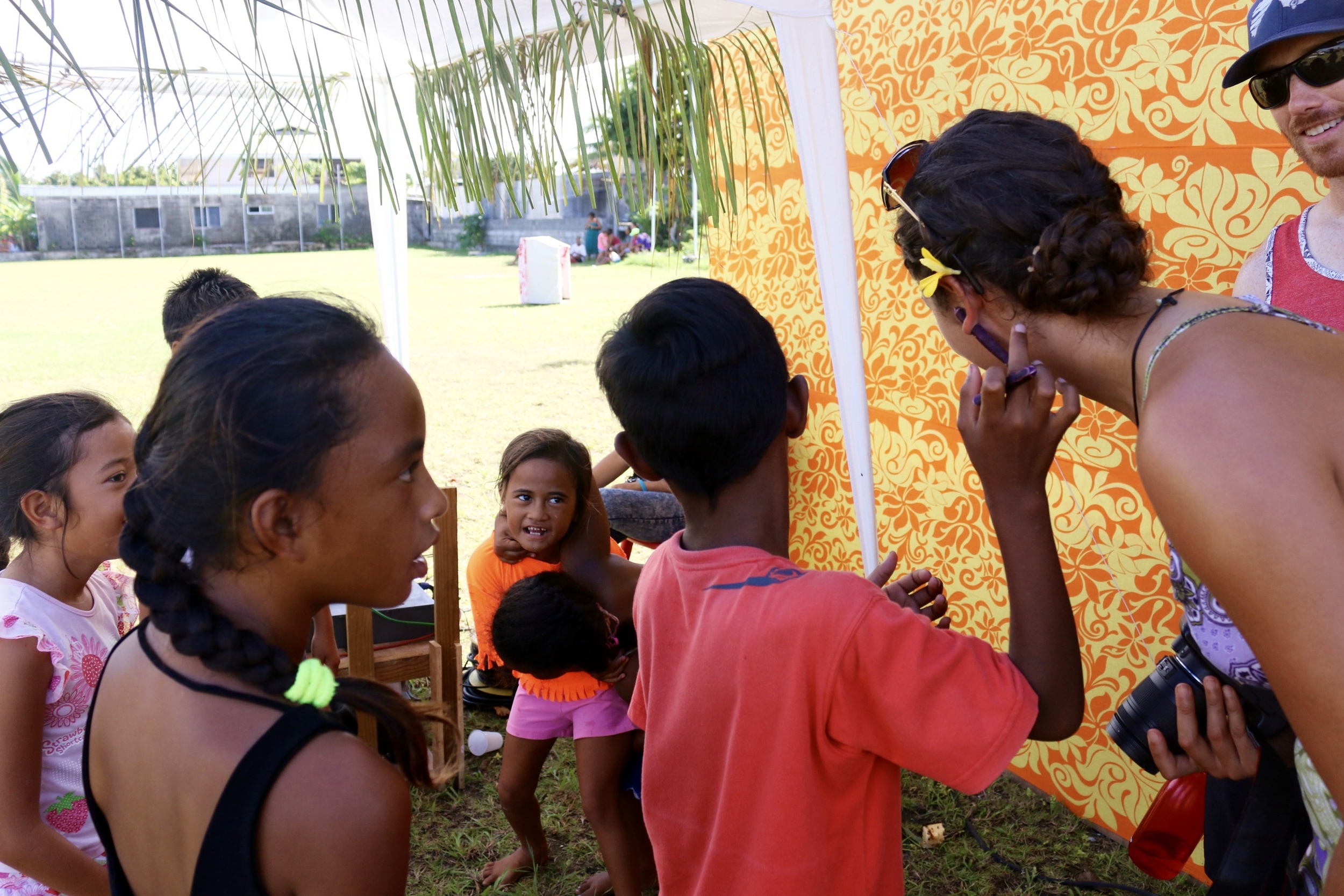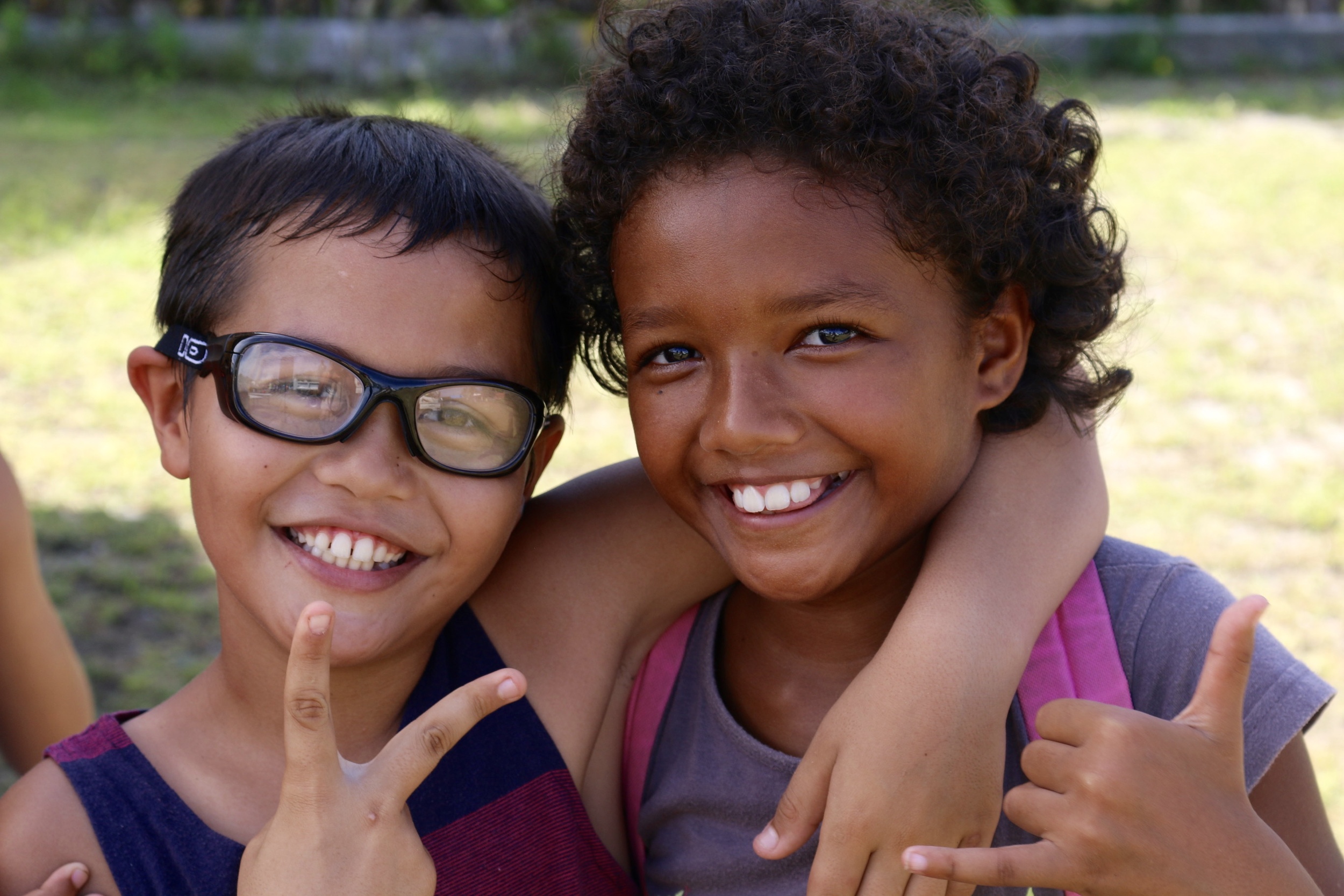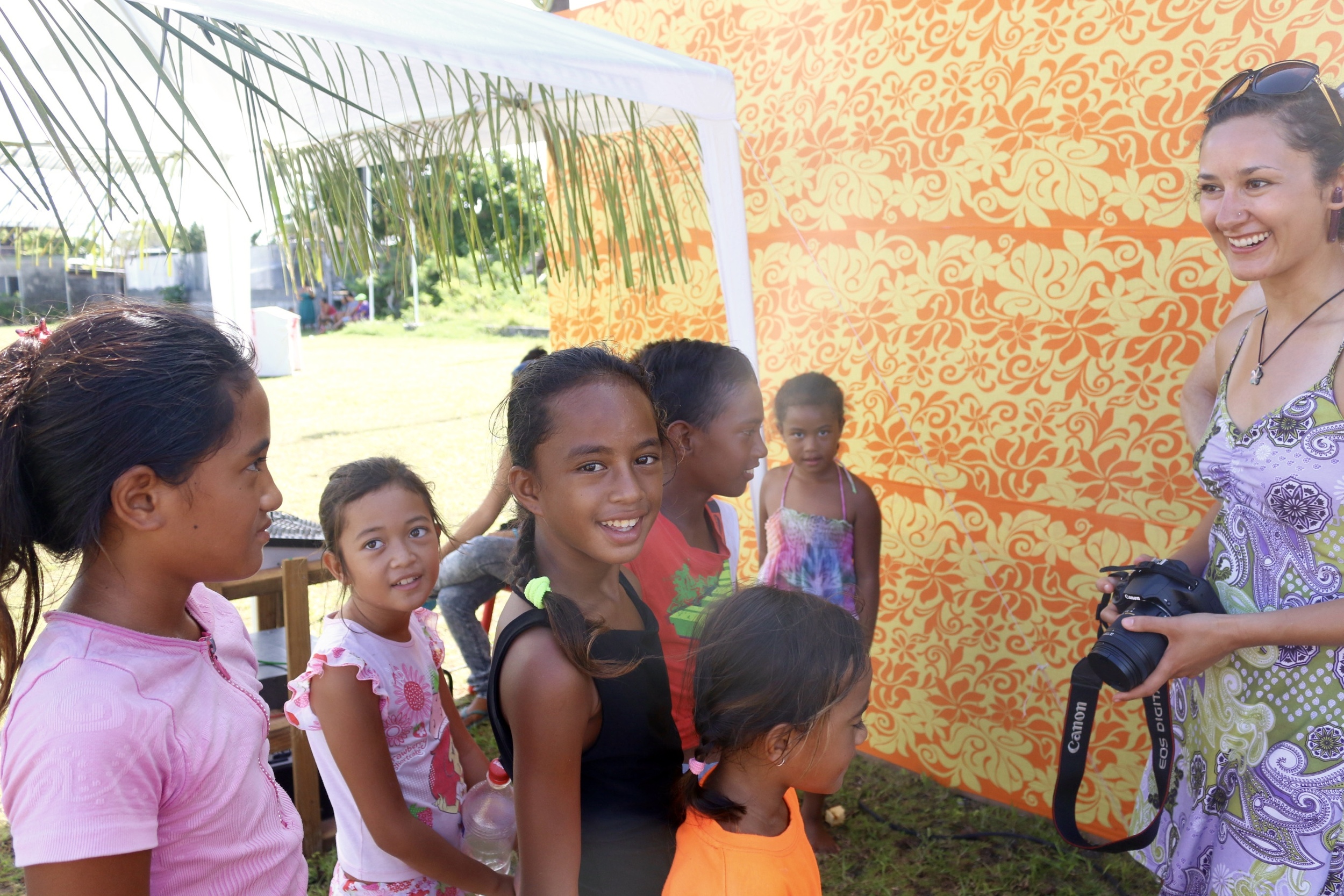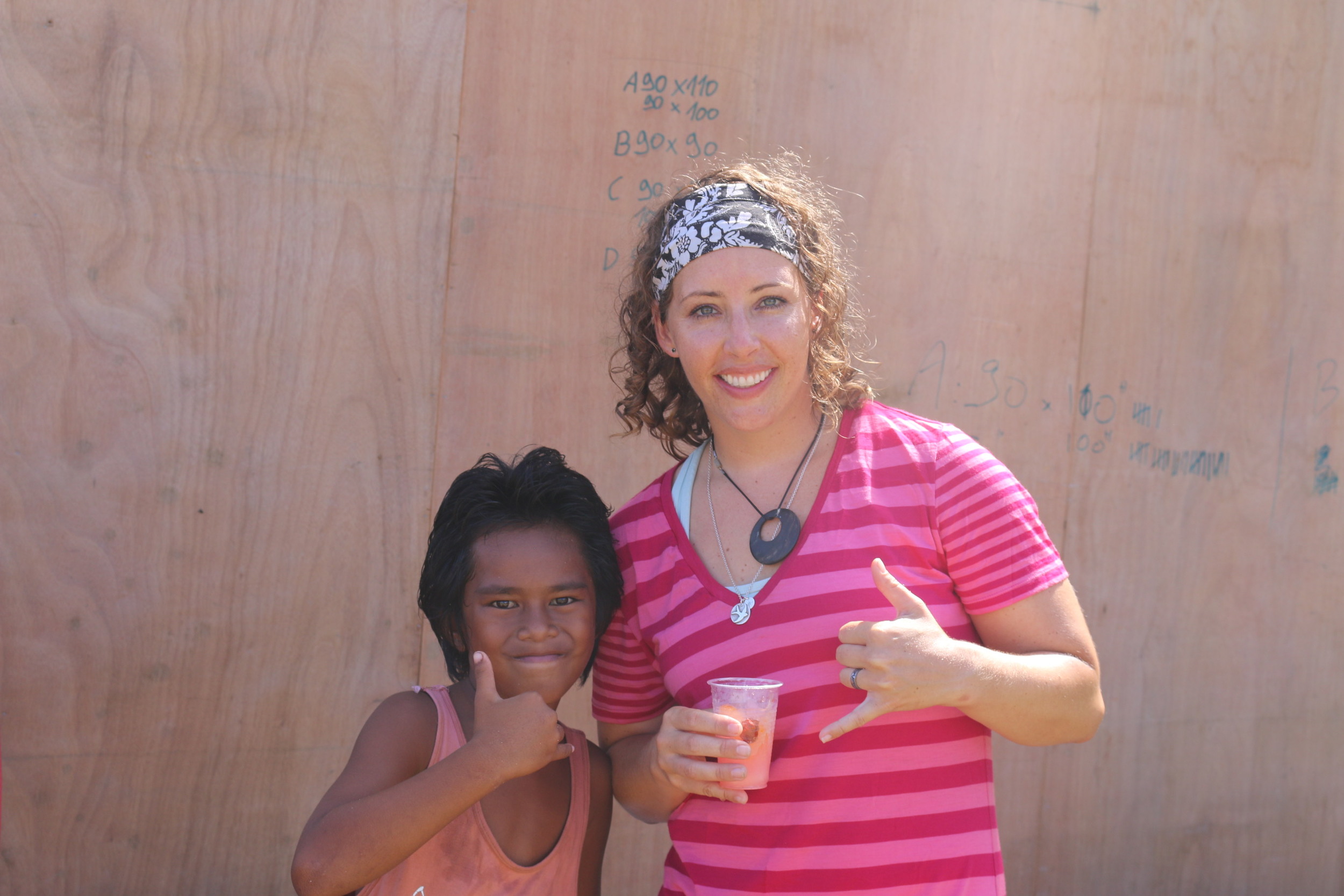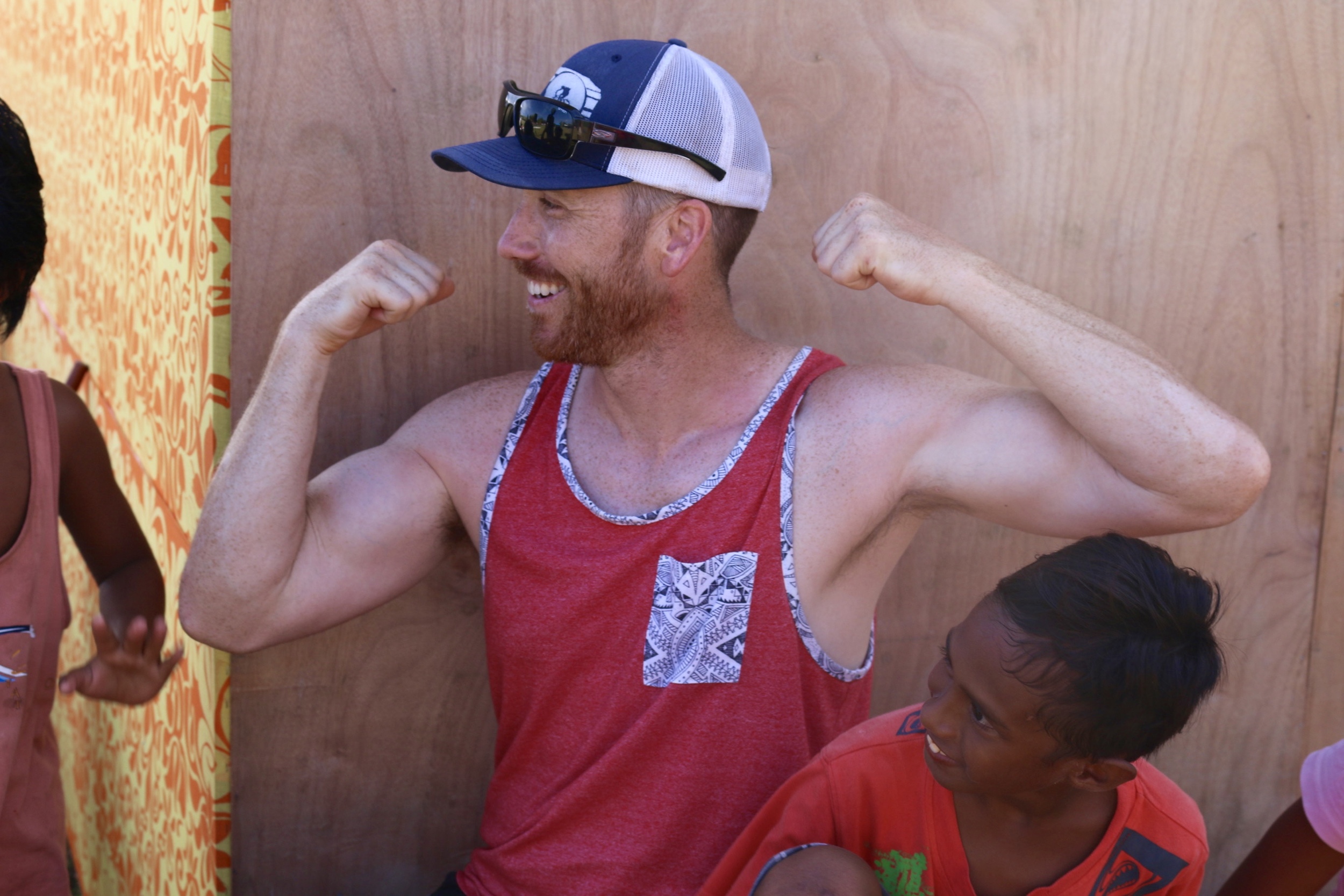Amongst all this other excitement, the village was preparing for Heiva or “The Grand Fete!” (the big party). Heiva is a two week celebration of Polynesian culture, and it was starting on July 14. For the entire week before, the village was alive with preparations. Women were fabricating elaborate costumes made of coconut, palm, shells, pearls, etc. Huts were being erected for carnival games. Men were practicing in their missile shaped canoes for the va’a races. And, the large shipping barge (The Dory) that comes each week was bringing in a load of supplies on Friday.
Ferdinand explained everything is very busy when the Dory comes. Ferdinand and his fellow island fisherman hustle to catch, pack and sell as much fish as they possibly can. Islanders who make their living with copra (dried coconut) are shucking, shelling and drying as much copra as they can. And, those in charge of preparation for Heiva await the Dory’s arrival to pull together party supplies.
On the morning of the Dory’s arrival, Ferdinand hails us over the VHF to come take photos. We head over to Ferdinand’s backyard and watch him counting and categorizing the fish he caught. He opens up a cooler with one giant red snapper, brilliantly red with turquoise blue polkadots. He pulls it out and instructs Crystal to hold it by the gills for a photograph.
When the Dory arrives, the entire town meets at the quay to gather up their packages. It is like Christmas here. People load up bicycles and carry stacks of boxes in their arms. Large freezer containers are lifted from the Dory to be filled with fish, then returned to the Dory for transport. The grocery stores are filled for one day with fresh fruit and vegetables. Then, as quickly as they began bustling, everyone disburses. The Dory winds up its dock ties and motors off. This is www.amazon.com on island time.
The morning of July 14, Lizzie is standing outside the boat calling for us to come join the festivities. As we unload from the boat, Lizzie exclaims “Andrew!” as she gives him a big hug, lifting him off the ground a little bit. “Leslie!” She lays her head on my shoulder, and then puts her arm around Crystal’s waist. We head over to the soccer field. On the way, we find boy scouts in uniform, women dressed in bright flower dresses, and men in trucks playing drums.
All sorts of games in progress. Little kids are lined up for potato sac races, adults are gathered around in a circle. Teenagers are giving little kids pep talks and secrets to the fastest potato sack techniques. The Race MC wears a bluetooth microphone headset, and his voice echoes across the field. This looks serious. The Race MC declares what amounts to “Ready, Set, Go” in French, and the little kids hop off. One falls, and is emotionally crushed by his early defeat. Another takes the lead, only to stumble and fall back, allowing a third to take the lead. The adults cheer, while the kids hop. Soon, a winner is declared and another set - a little older - lines up. Then another, then another. Soon, we find that this is a competition that goes all the way through adulthood. Crystal and I consider participating, but the women are ready and off the line before we realize it is our age group’s turn. Good thing, because as I watched them go I was pretty certain that this is another one of those island skill sets I do not have.
One of our Manihi friends runs up to us and invites Andrew and Kevin to race with the men’s group. Kevin’s ankles hurt from a prior injury, but Andrew was game. So he runs over, kicks off his flip-flops and sacks up. “Ready! Set! Go!”
And they are off. In two bounds, the Tahitian men create a significant gap between themselves and the starting line. Andrew, on the other hand scoots forward maybe a foot with each hop. He tries to speed up his hopping, but this causes his feet to get tangled. He is having a hard time reaching down to hold the short sac up. He falls, face forward, luckily catching himself with his hands but losing his sac. By now, the Tahitians are bounding like rabbits, using one hand to hold up the sacs, and the other hand to swing over their heads for more forward momentum. Andrew is maybe a quarter of the way through the course while the remainder of his competitors are crossing the finish line. Once the onlookers confirm their chosen competitor won or lost, they turned their attention to Andrew. Some covered their mouths to politely stifle laughs while others (me) howled with abandon, pointing and laughing so hard that they couldn’t breathe.
Andrew, chin held high, hopped, hopped, and hopped all by himself the remaining 75% of the race course. Each hop seemed to require some mental calculation that the Tahitians just didn’t have to make. As he neared the finish line, islanders are cheering, laughing, hooting, and encouraging him on. The last two hops were taken with the strain of a man who had been drained of his life force. As Andrew would later report, he considered just falling face first over the finish line.
Next were “canoe” races, tug of war, and races in which competitors had to carry a number of coconuts loaded onto a stick. I watched the island women pick up the stick with eight coconuts tied to each end like it was light as a feather, hoist it over their shoulder, then sprint at least a fifty yard difference. All of Sonrisa’s crew had the good sense to stay out of this competition.
After lunch is the coconut shucking contest. Both the men and the women compete. Piles of 100 and 80 coconuts respectively are parceled out. Then, a team of two competitors axe open and shuck all the coconuts in their pile. The competitors who are able to shuck the coconuts fastest win. This, too, is intense. As the women shuck, the knives slip from the coconuts, stabbing the shucker in her holding hand. Soon, all the women are bleeding, but they carry on. Sacrifice for the coconut! They axe and shuck, axe and shuck, sweat trickling down from the flower wreaths crowning their heads. Once they finish shucking, they have to clean up all the coconut meat, bag it, and carry the bag to the race official. Two teams are pretty close in time, and when the prevailing team is declared they raise their hands in jubilation.
In the men’s group, one team took an early lead. The winning shucker had his hair pulled back in a pony tail, sweat pouring from his chin. His eyes were sharp with focus. He knew just where to insert the shucking knife to pop out the coconut in one clean jab. While his competitors hammered, split, scooped and crushed, this guy just pushed the knife in and popped the coconut out, easy-peasy.
We were watching the games when two little girls came and stood right in front of Crystal. Having lost her earrings while snorkeling, Crystal had put sea urchin spines in her gauged ears as replacements. The girls looked up at Crystal’s ears and shyly smiled and giggled. They whispered to each other and pointed. “Hi!” Crystal said, smiling. The little girls smile and giggle. They point to her ears. “C’est pas mal?” Meaning, “Didn’t that hurt?” I translate for Crystal, and she says “No.” She leans down to give the girls a closer look. Soon, there are a gaggle of little girls and boys checking out Crystal’s earrings and Kevin’s muscles. Crystal volunteers Kevin to alternately flex his chest muscles which raises cries of “Titties! Titties!” The kids laugh and demand more. It’s the Crystal-Kevin Circus Show.
By the time the games were complete, we were as tired as the Polynesians. It was a hot and humid day, so we headed back to the boat for a swim.
